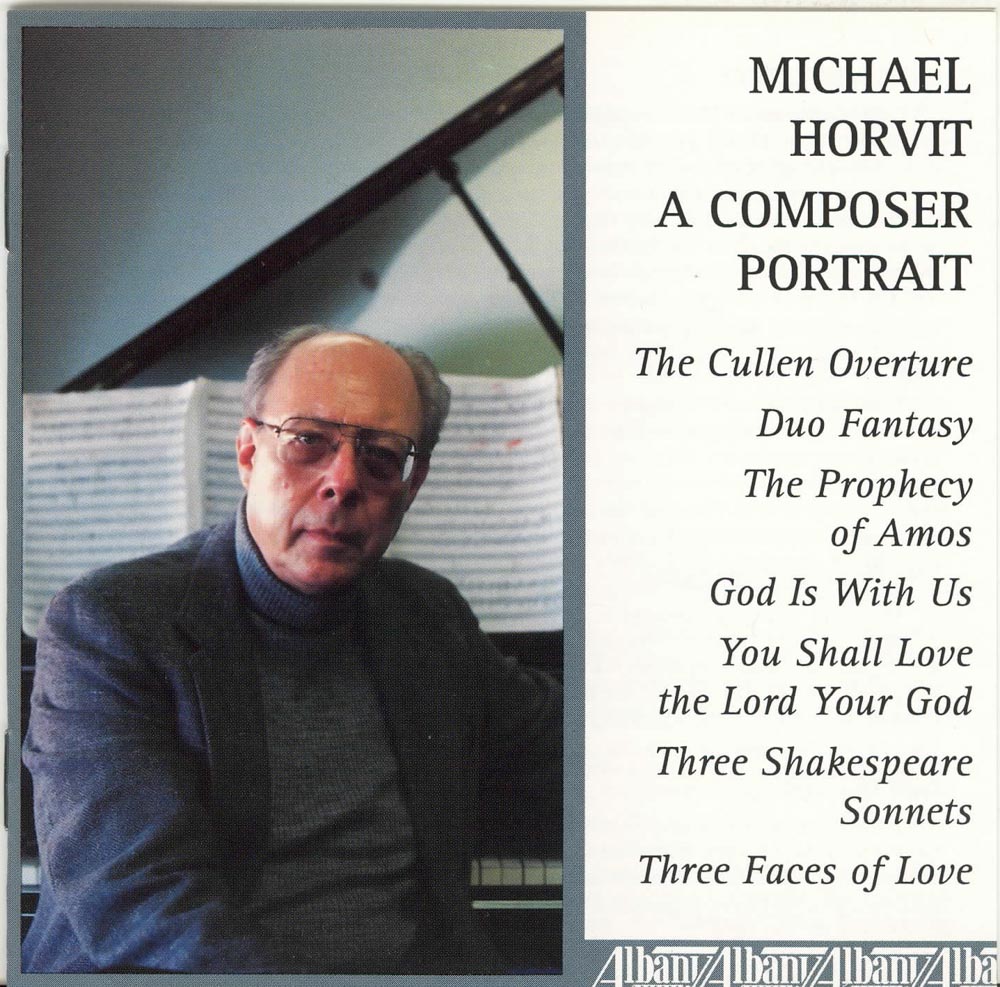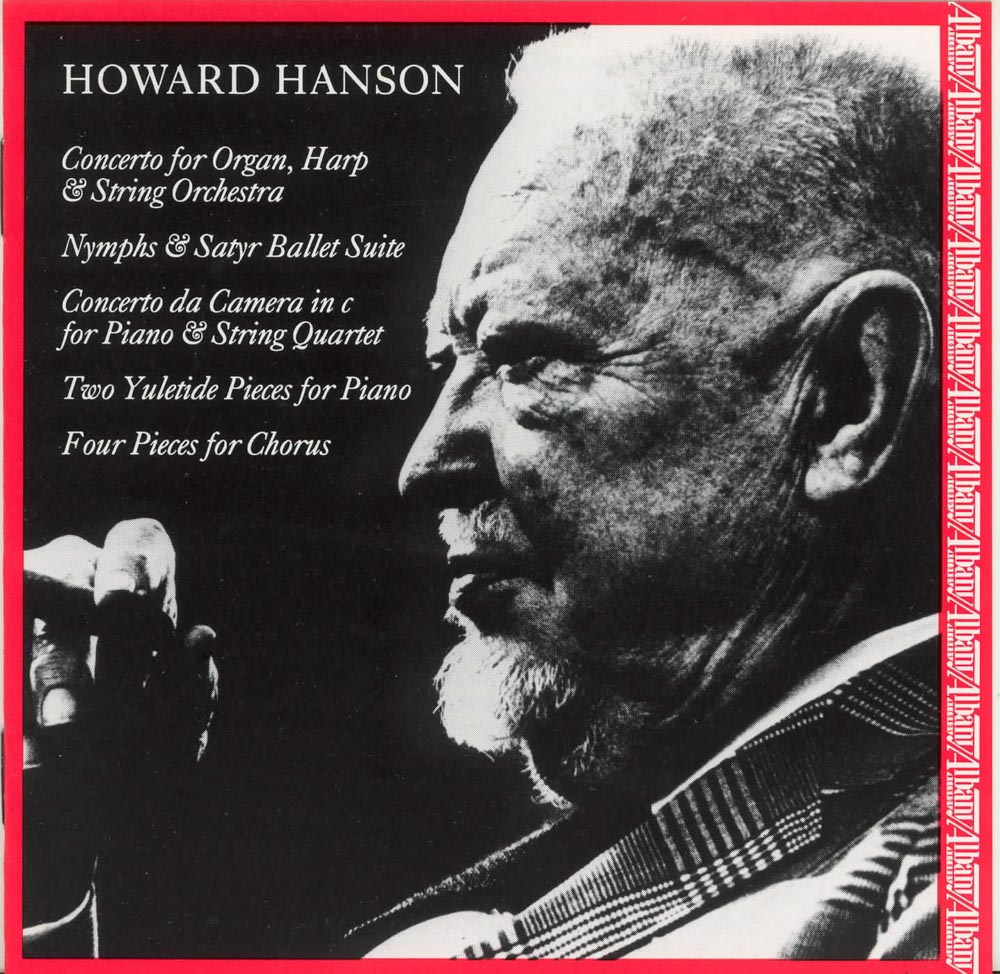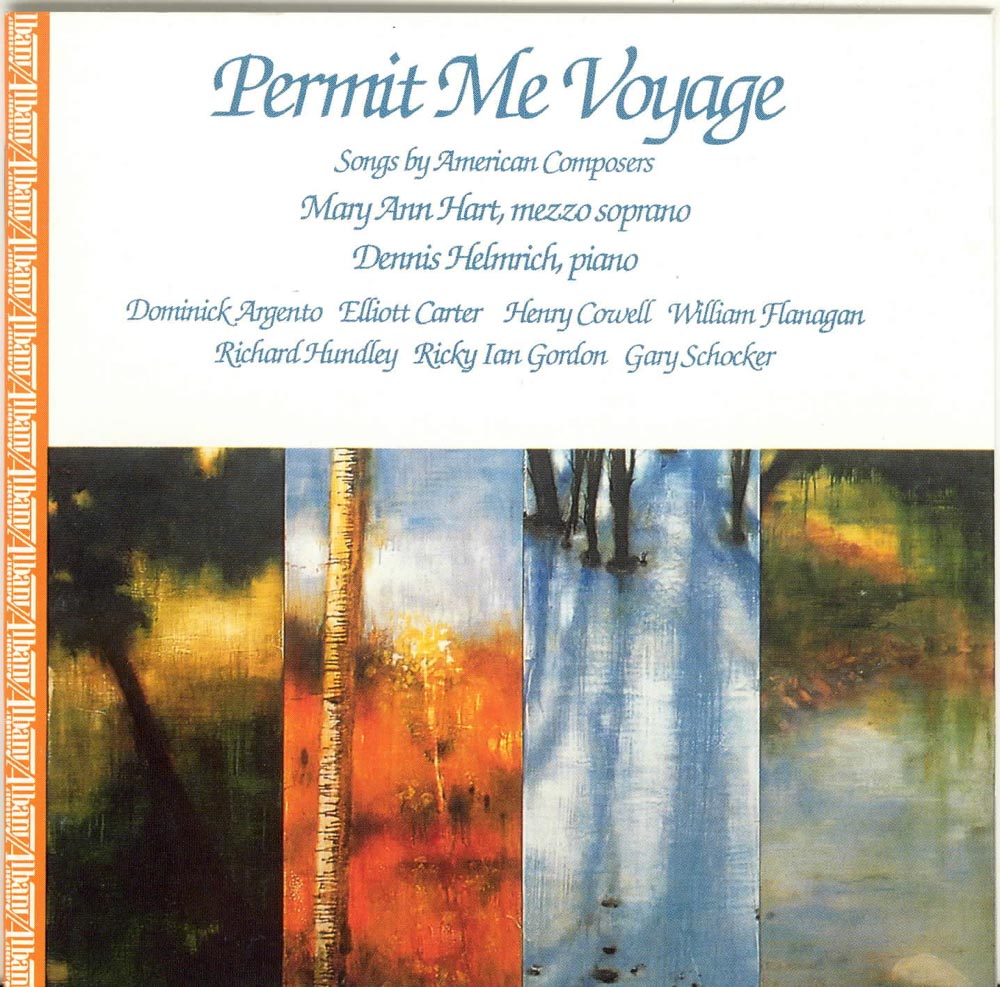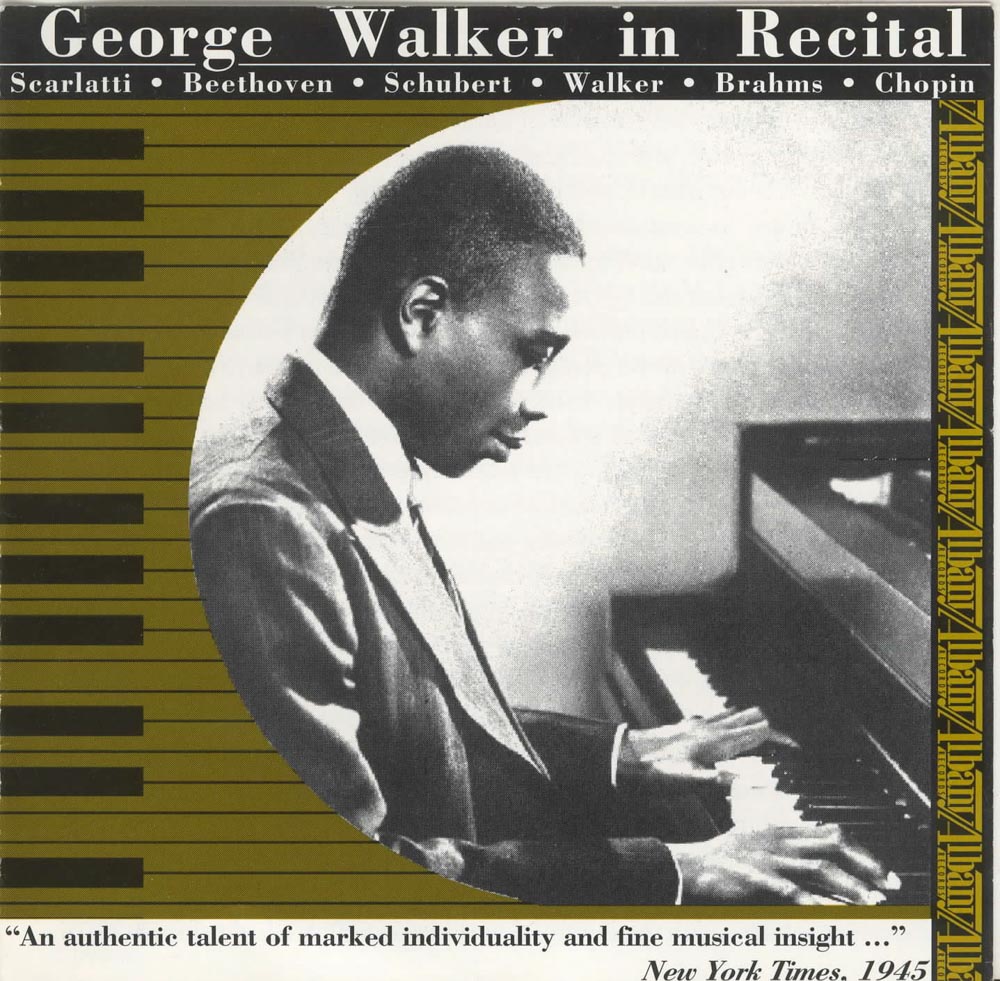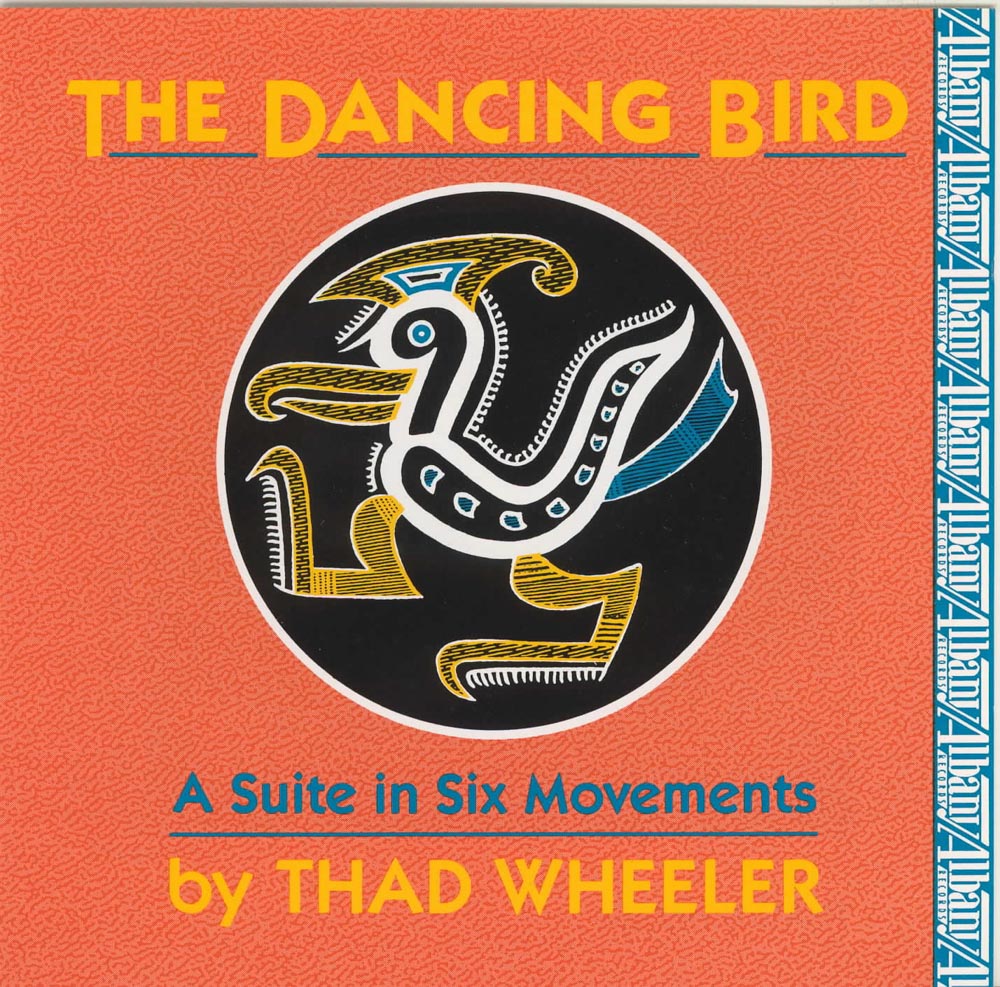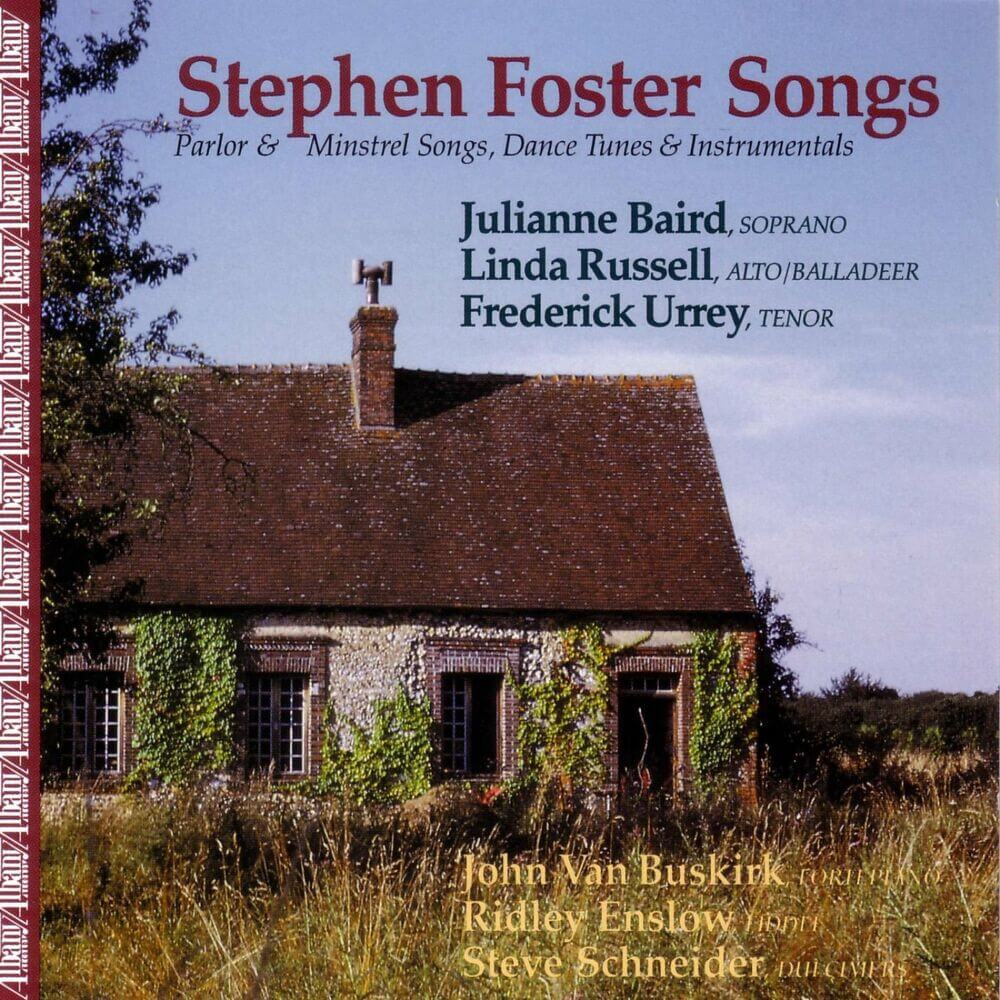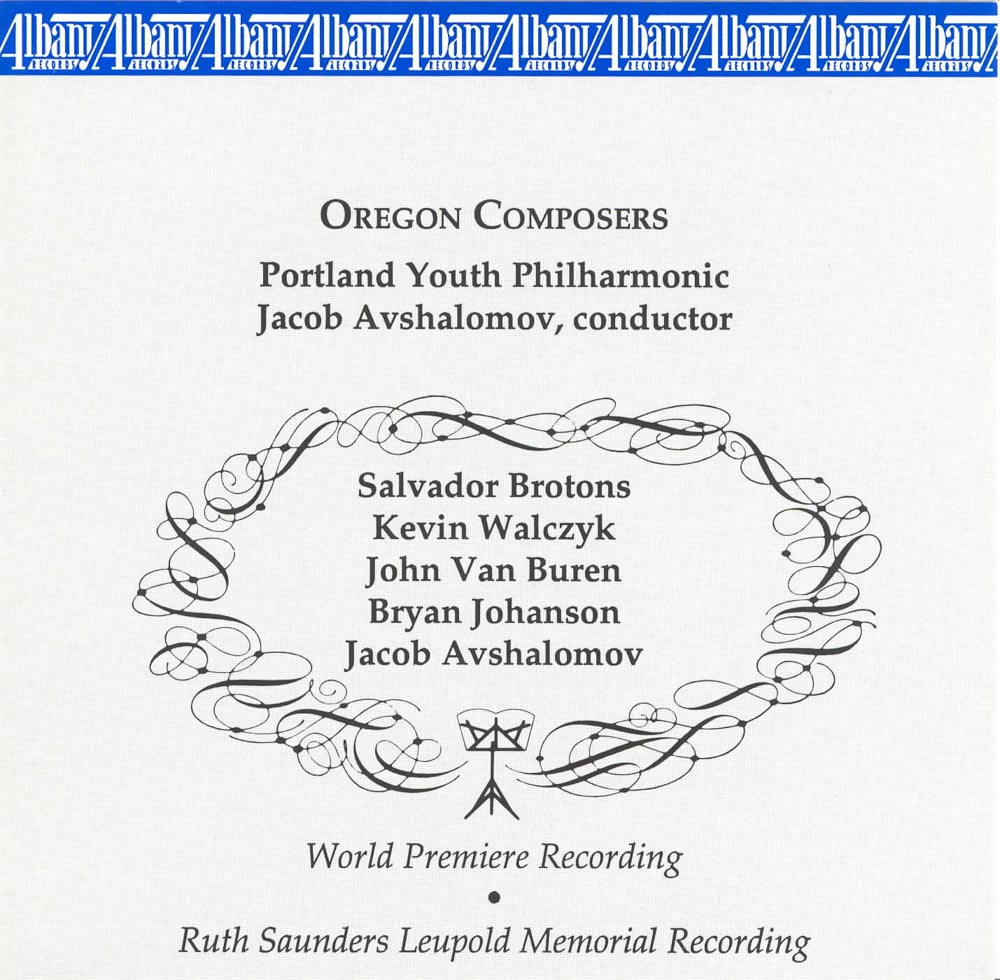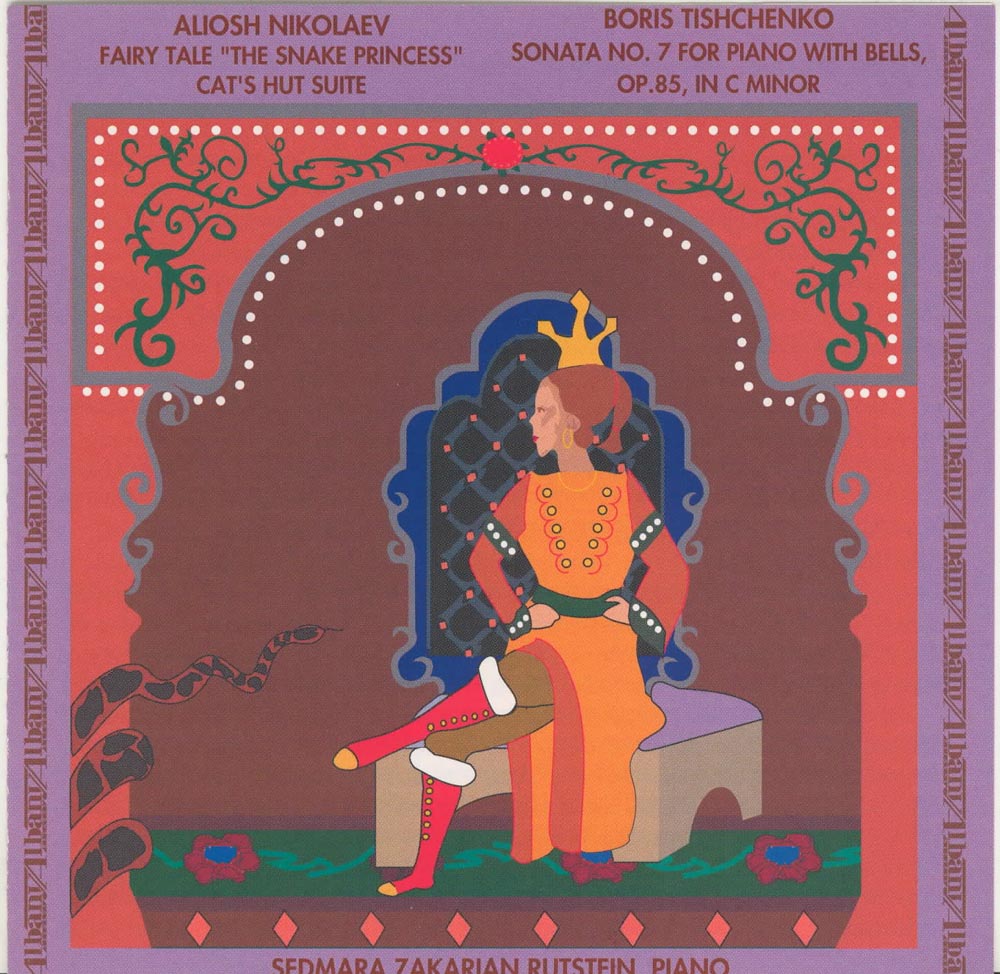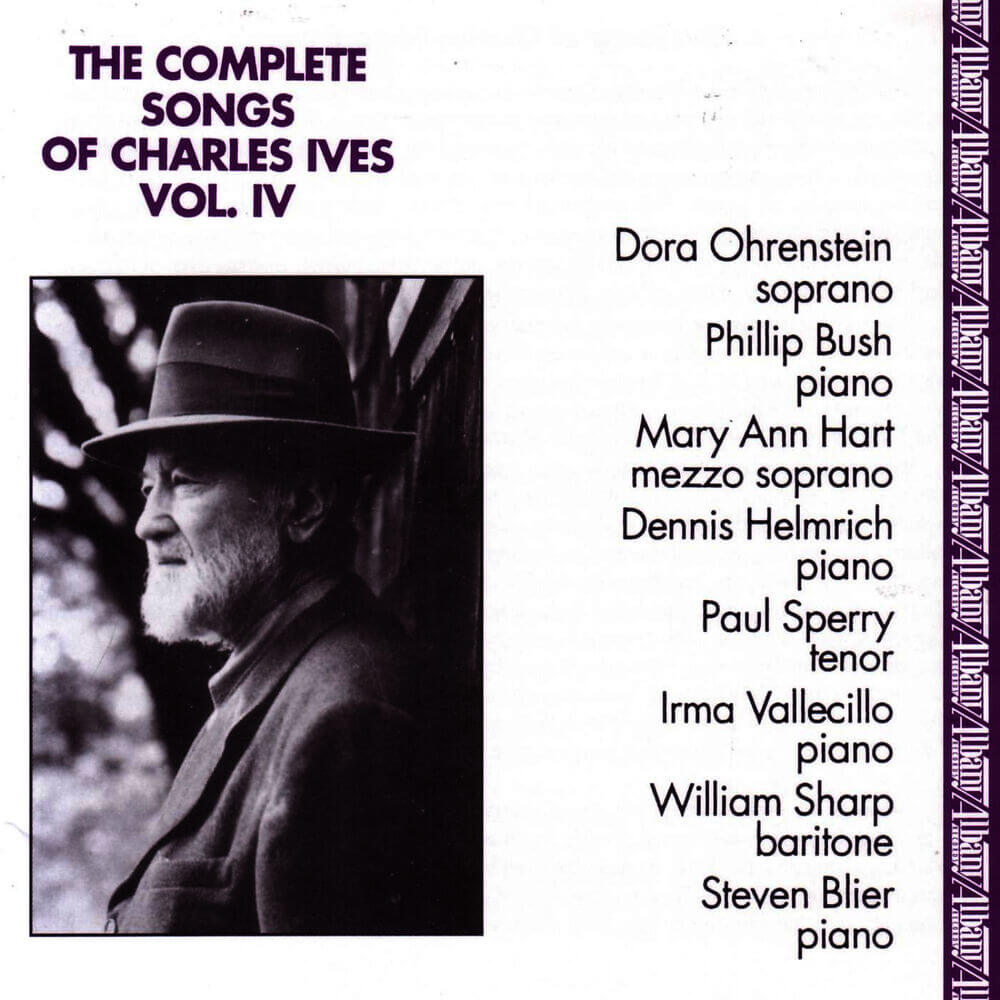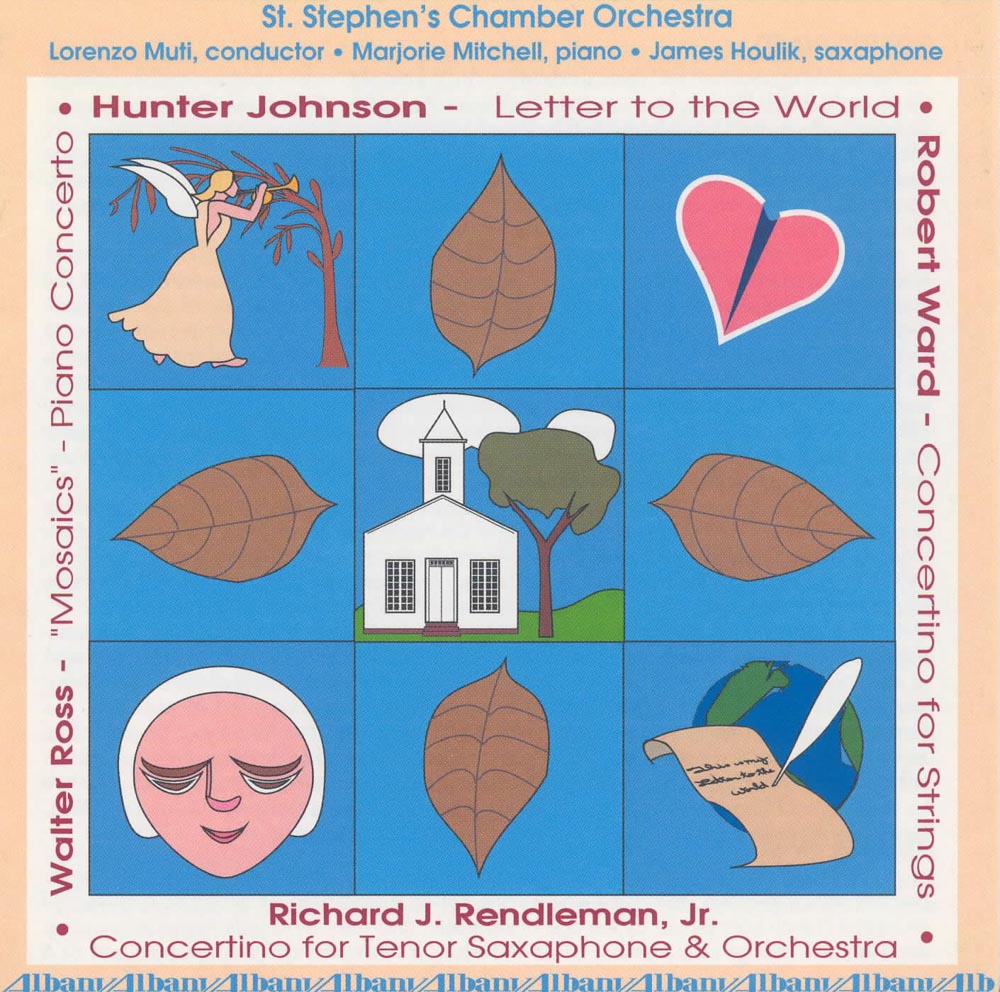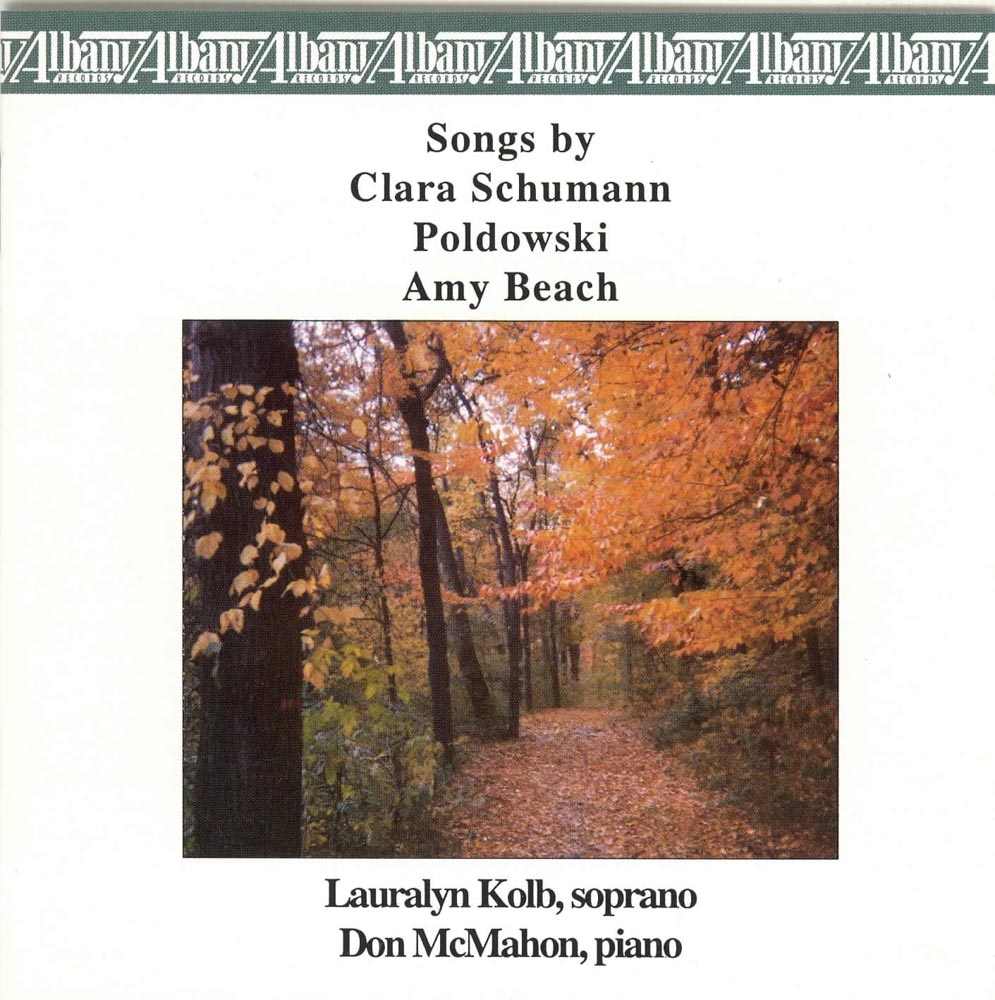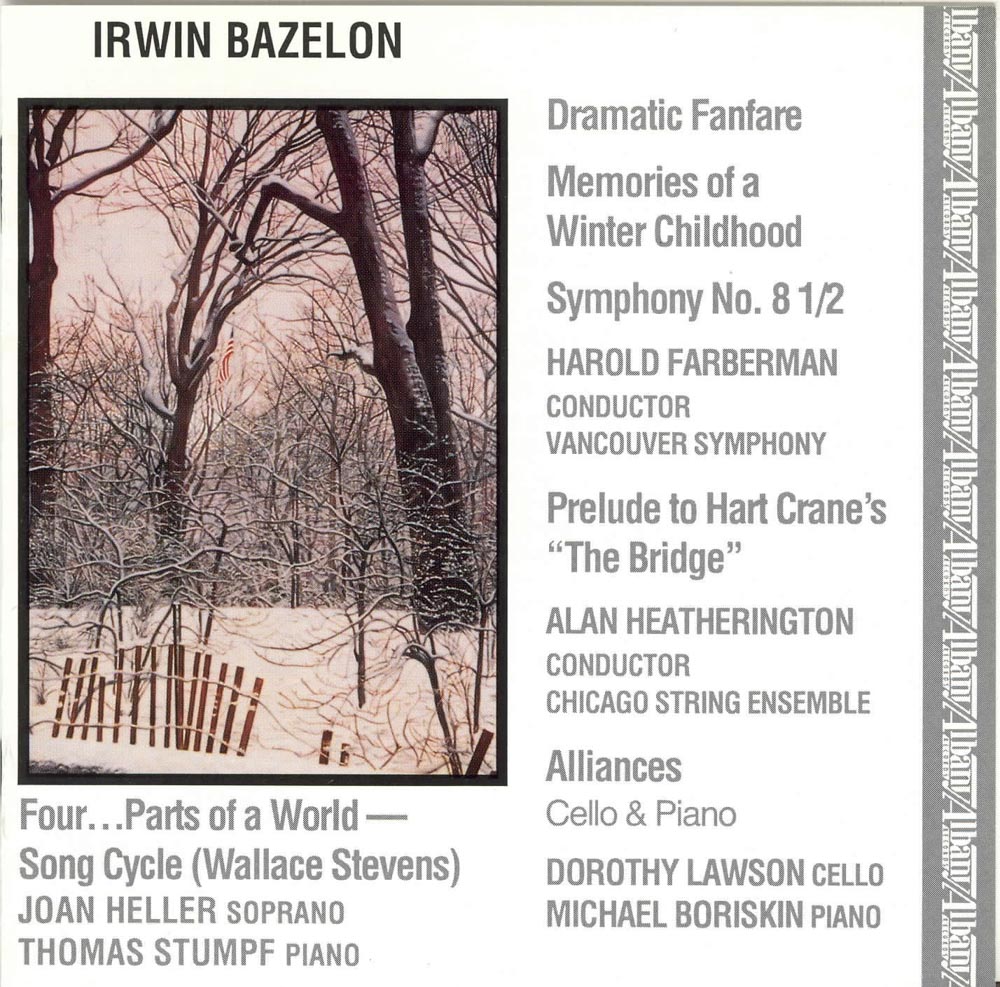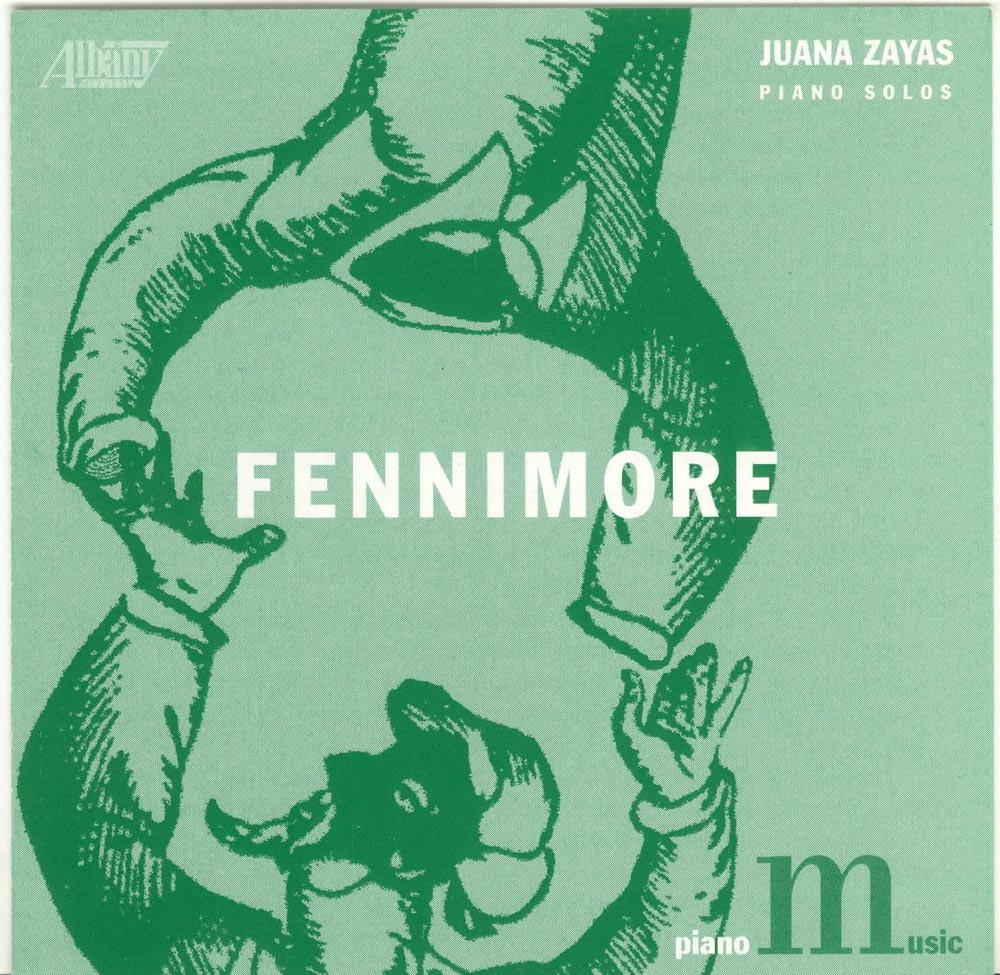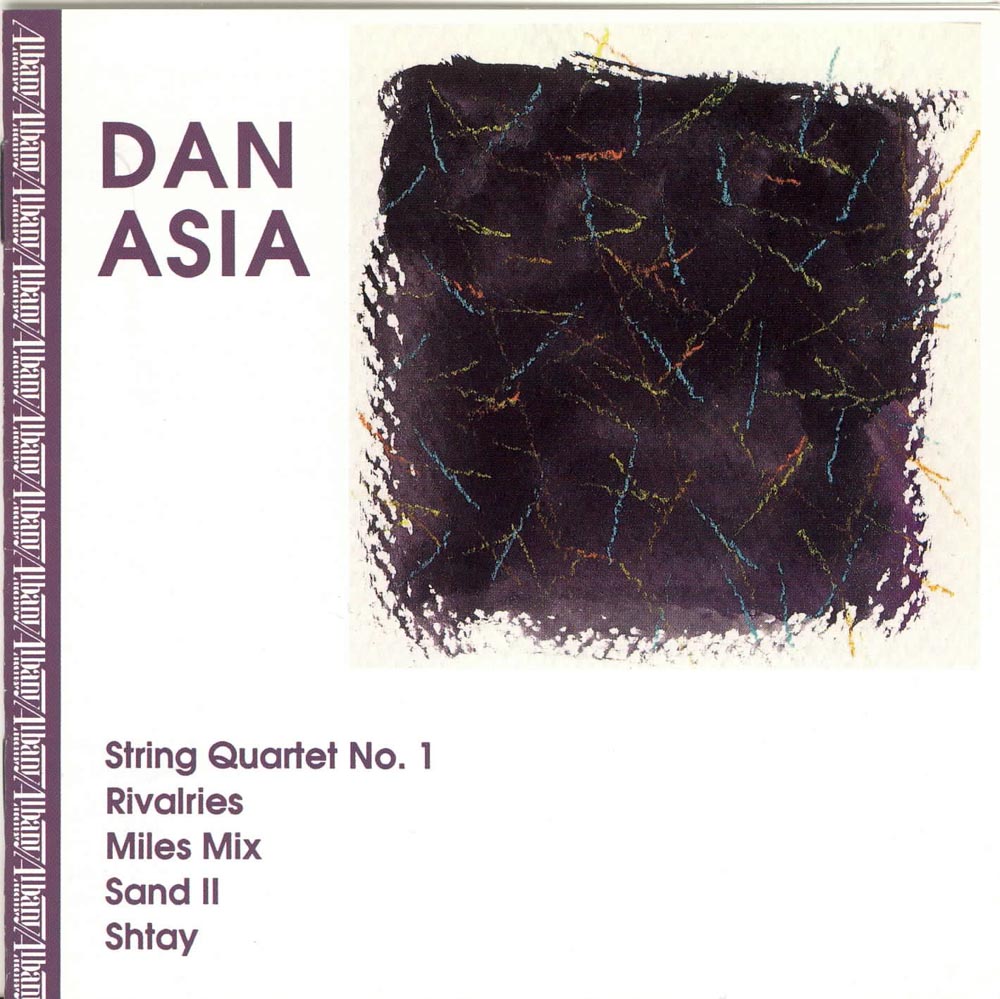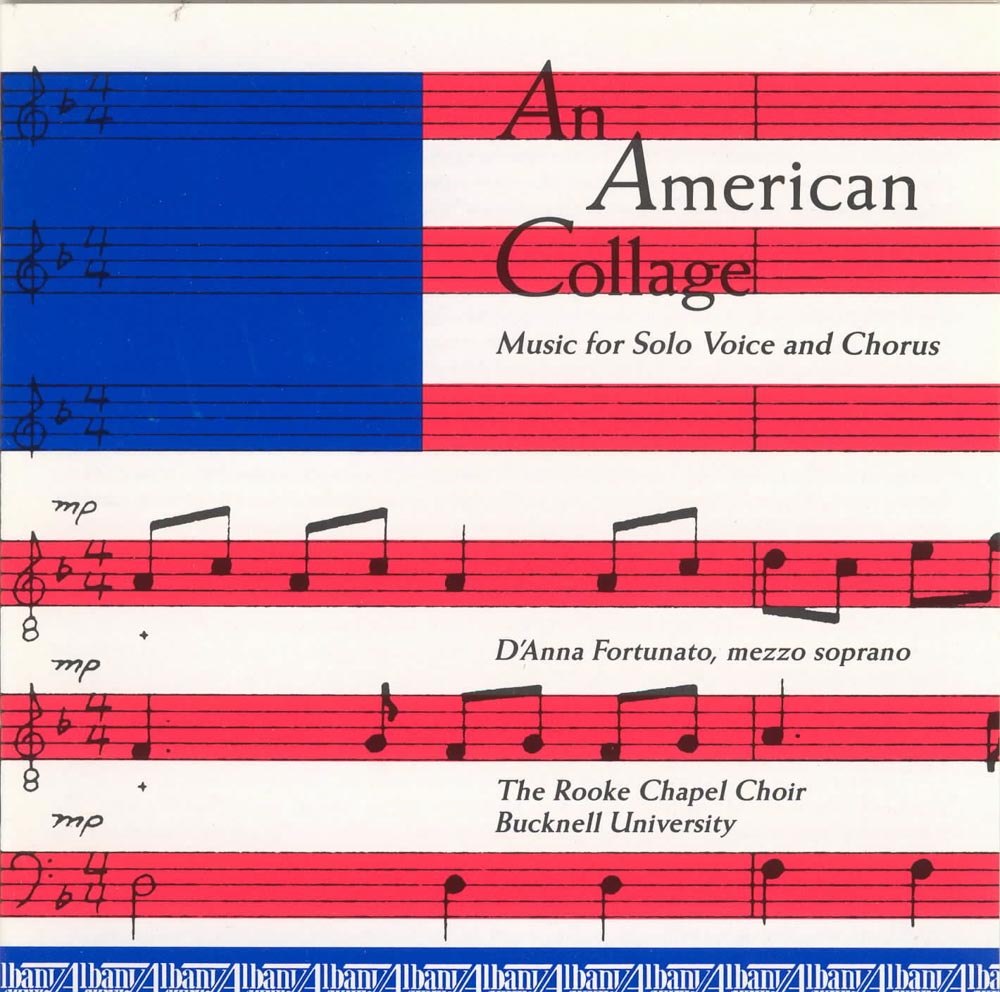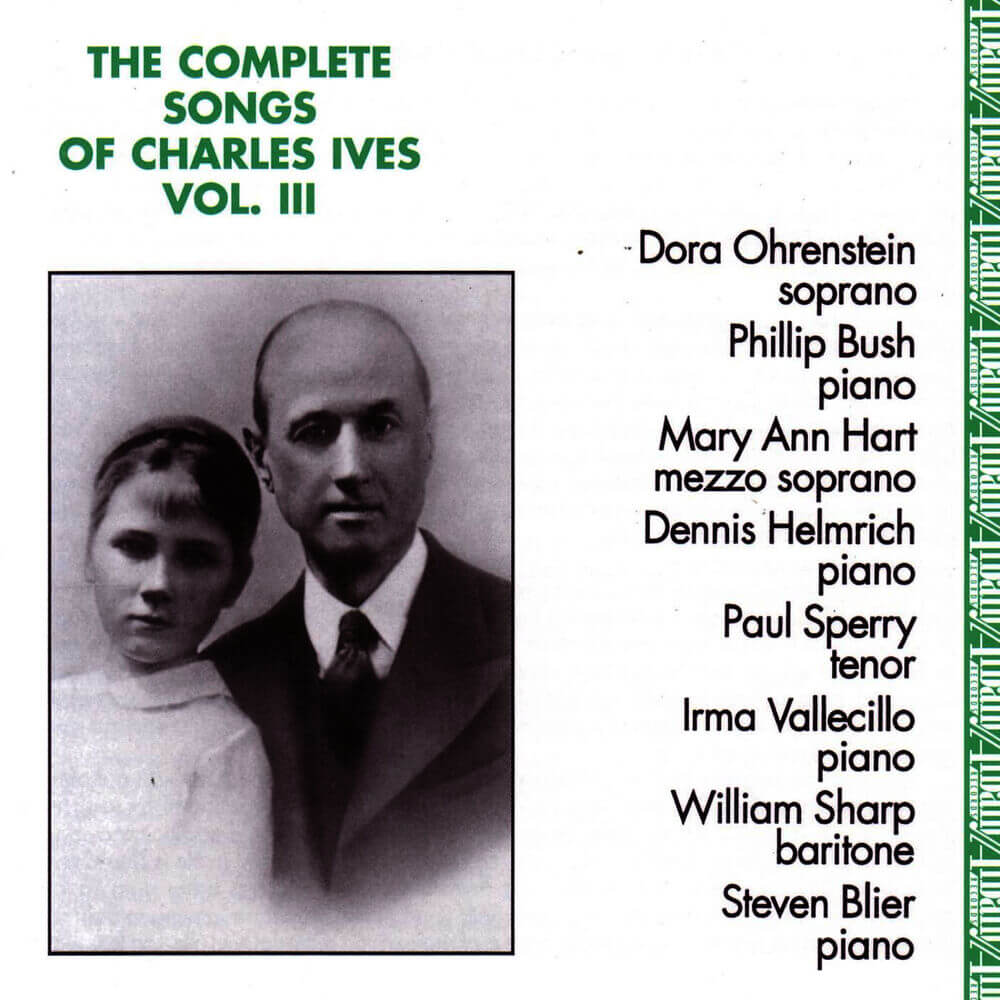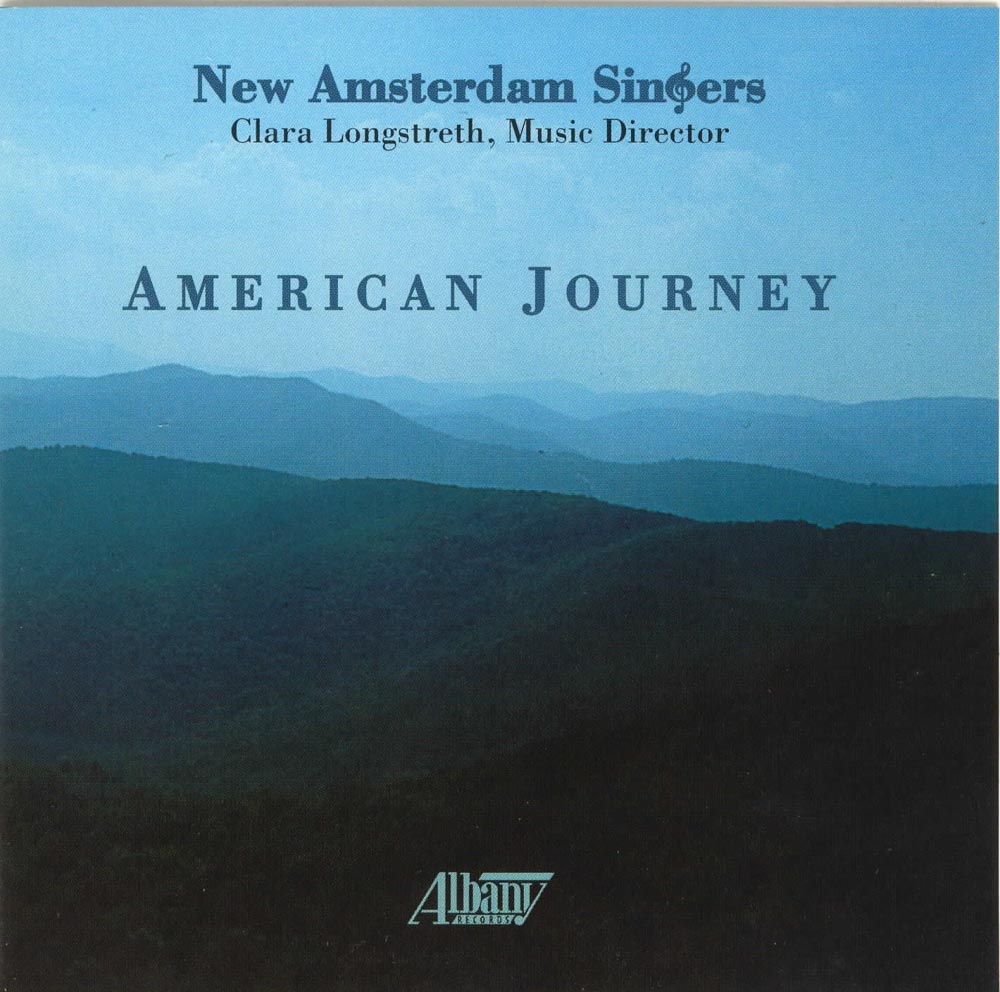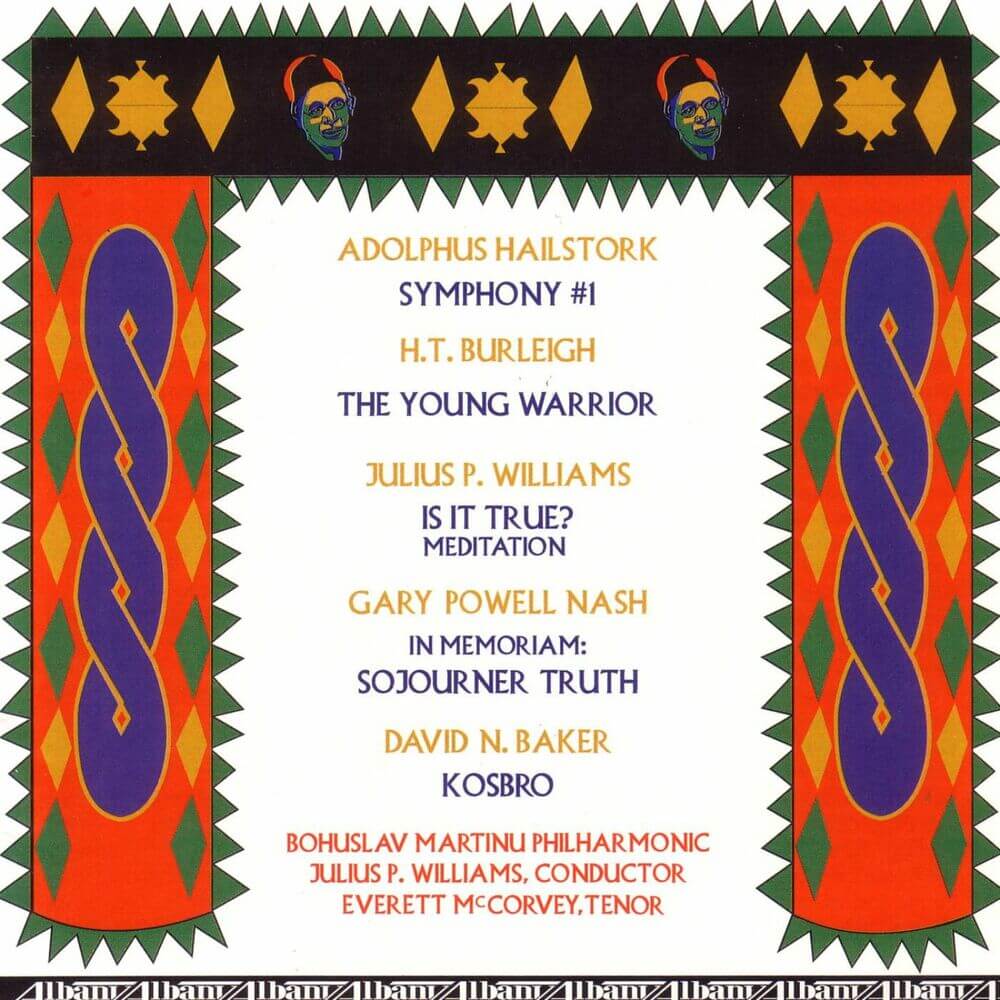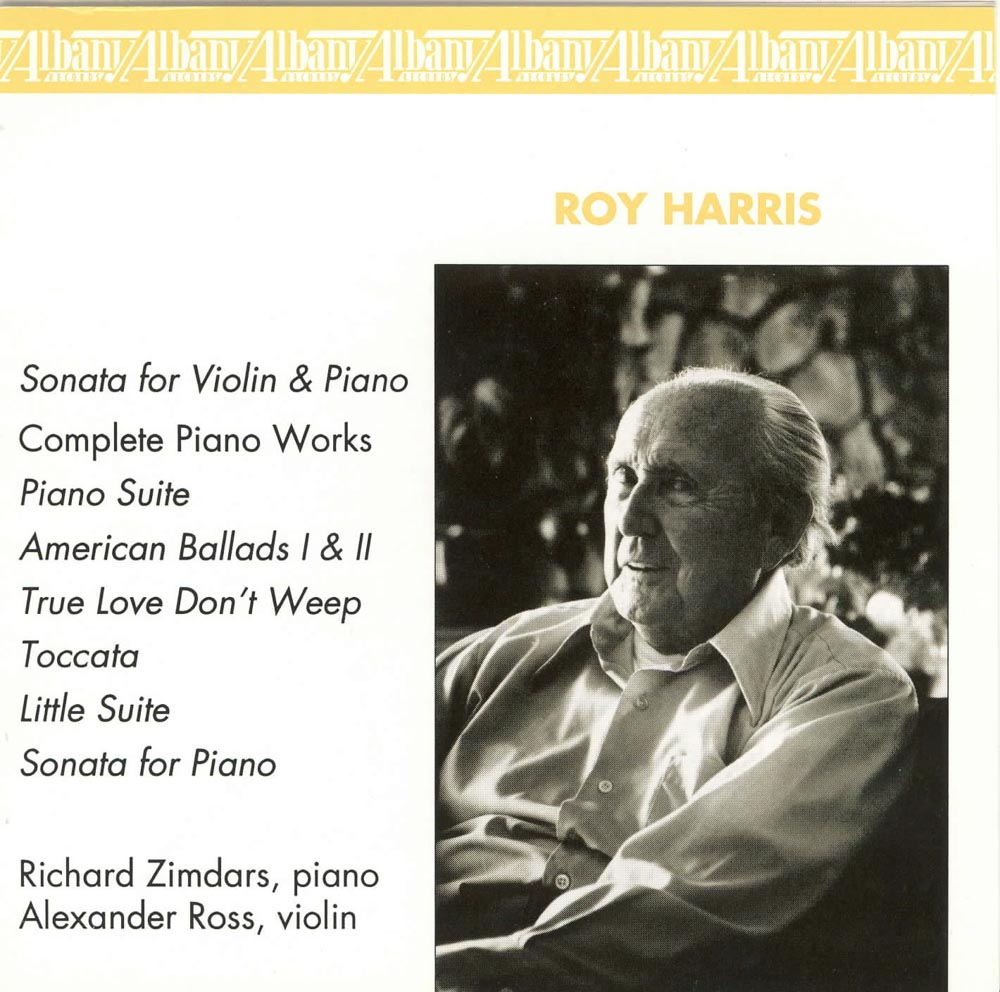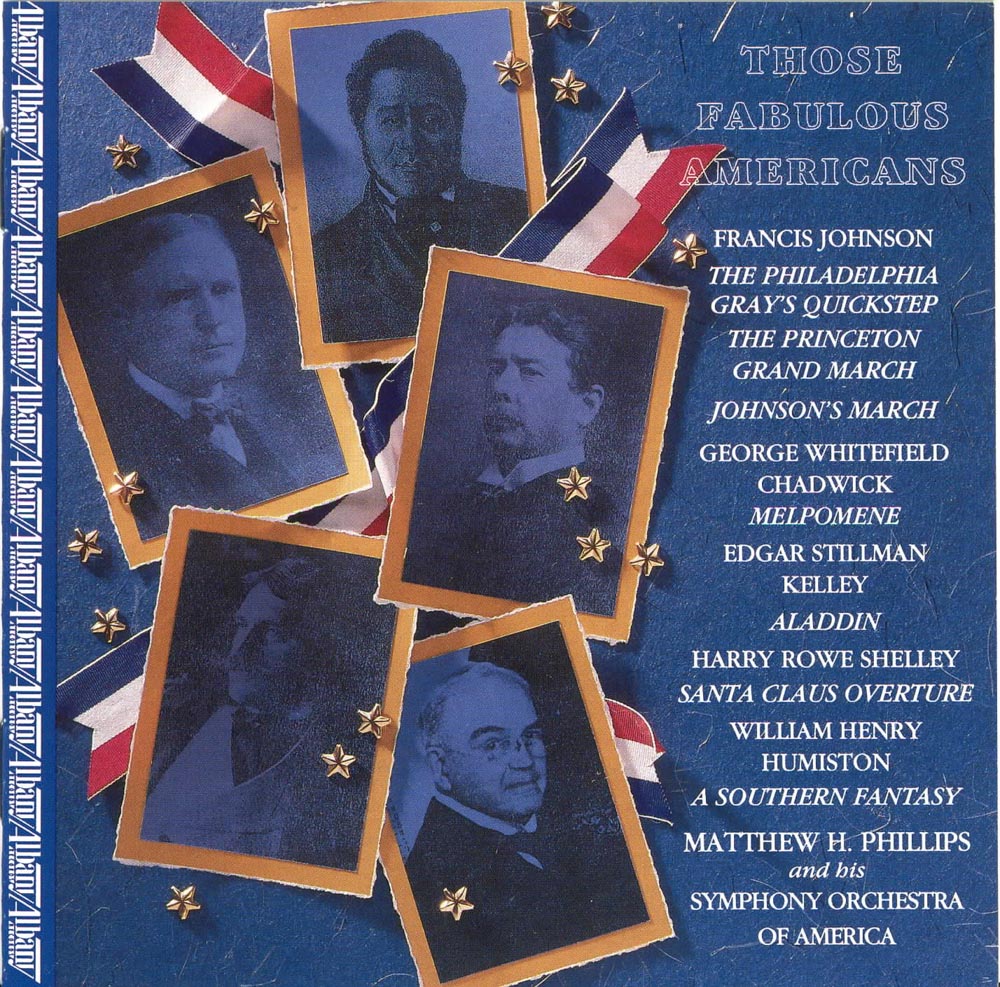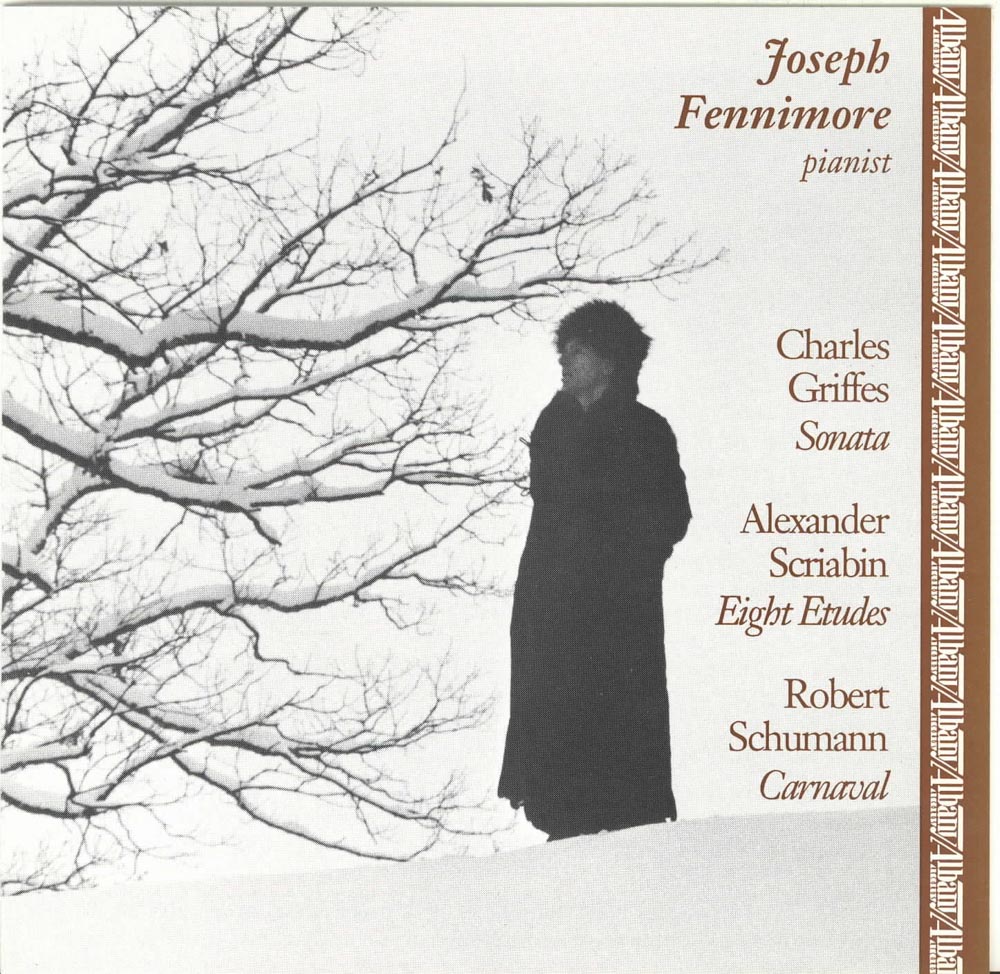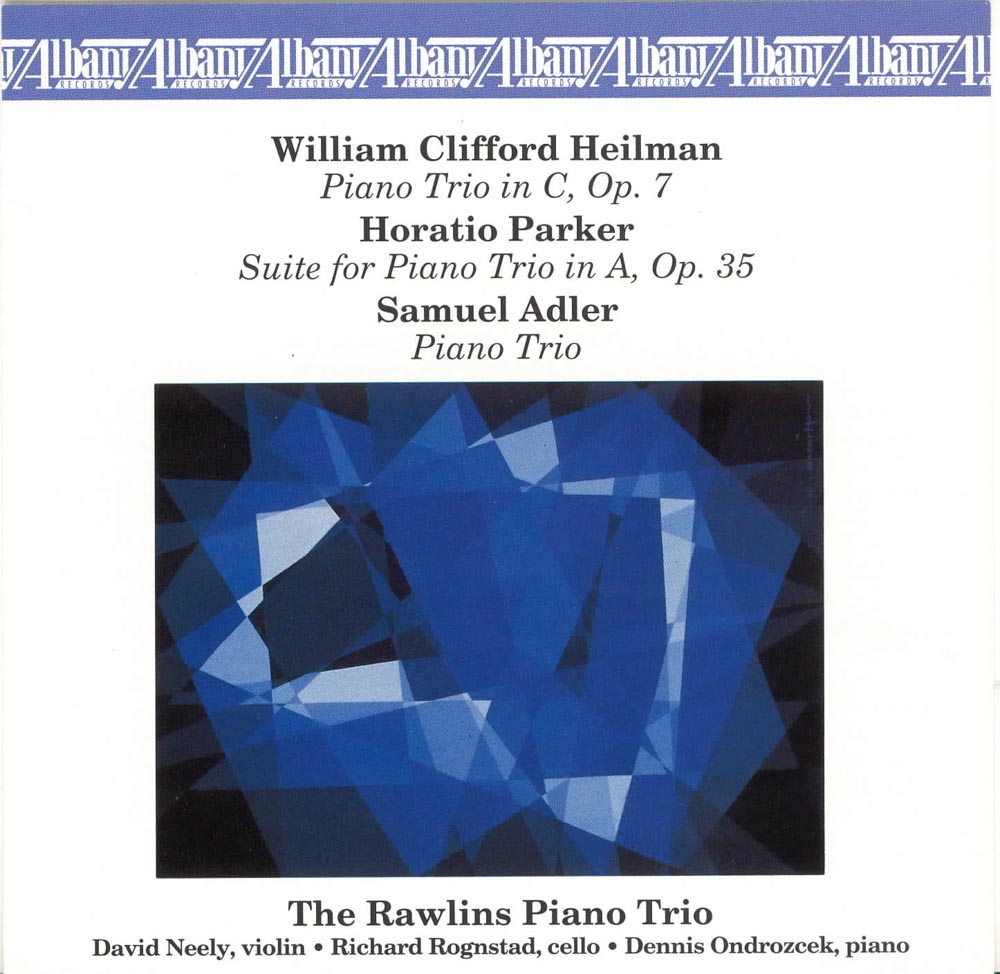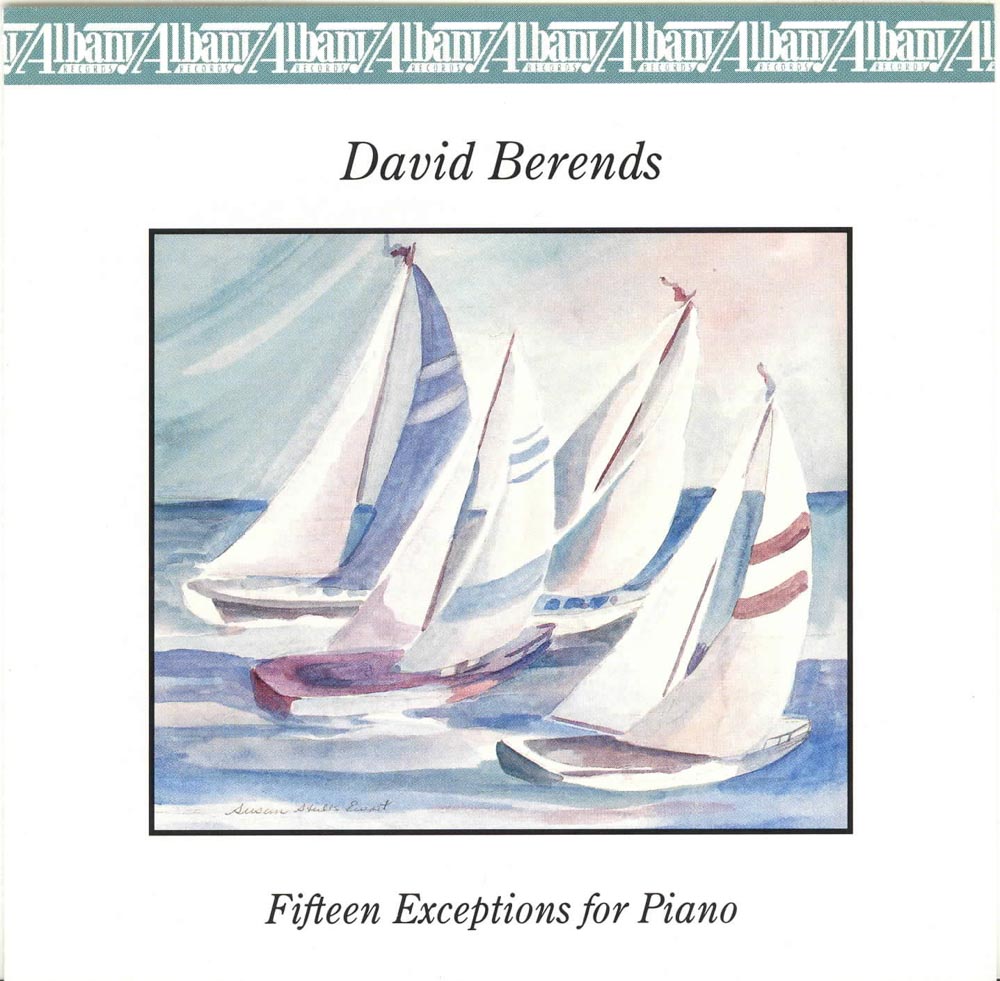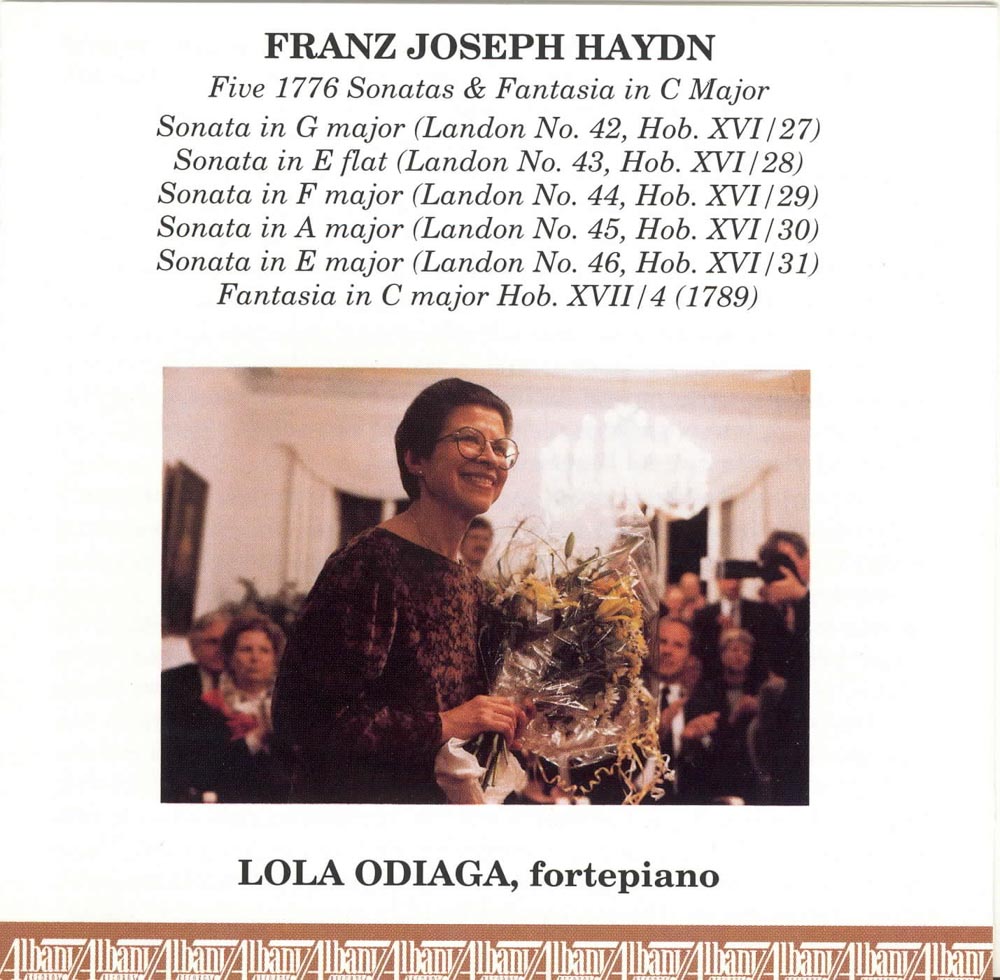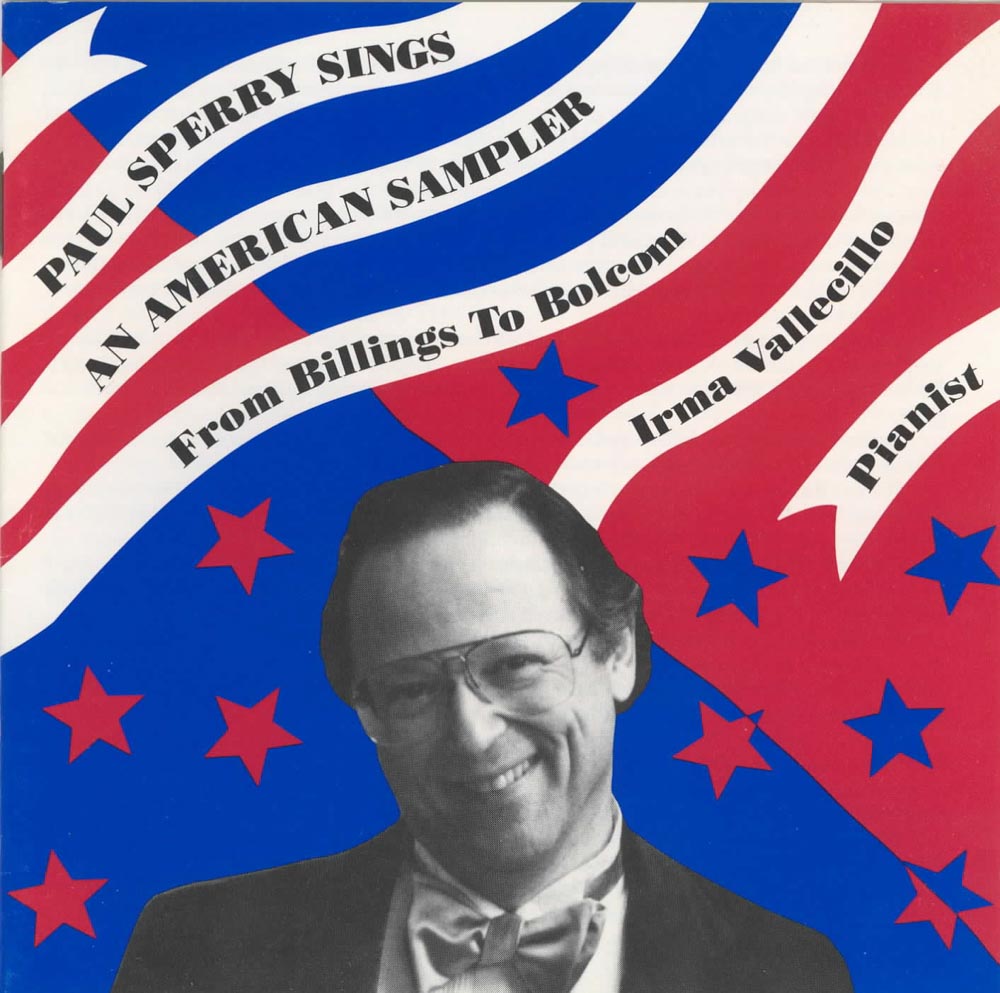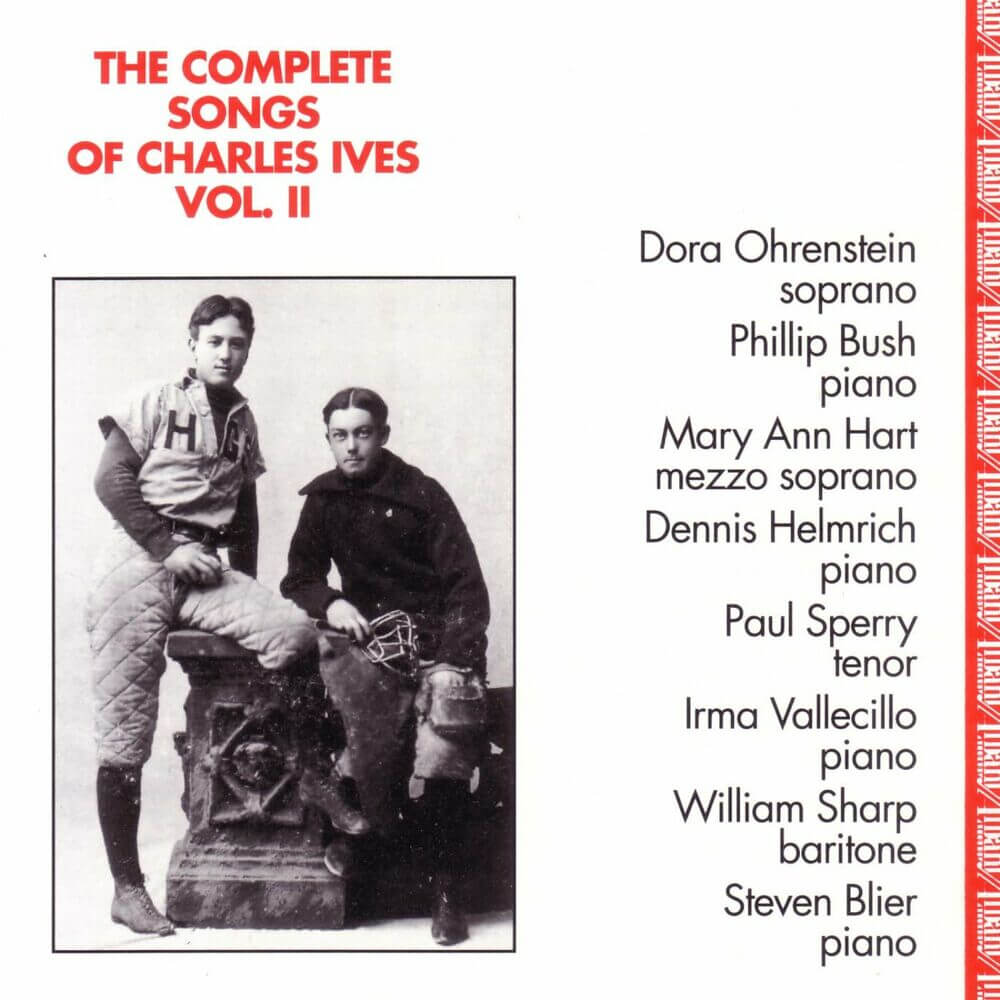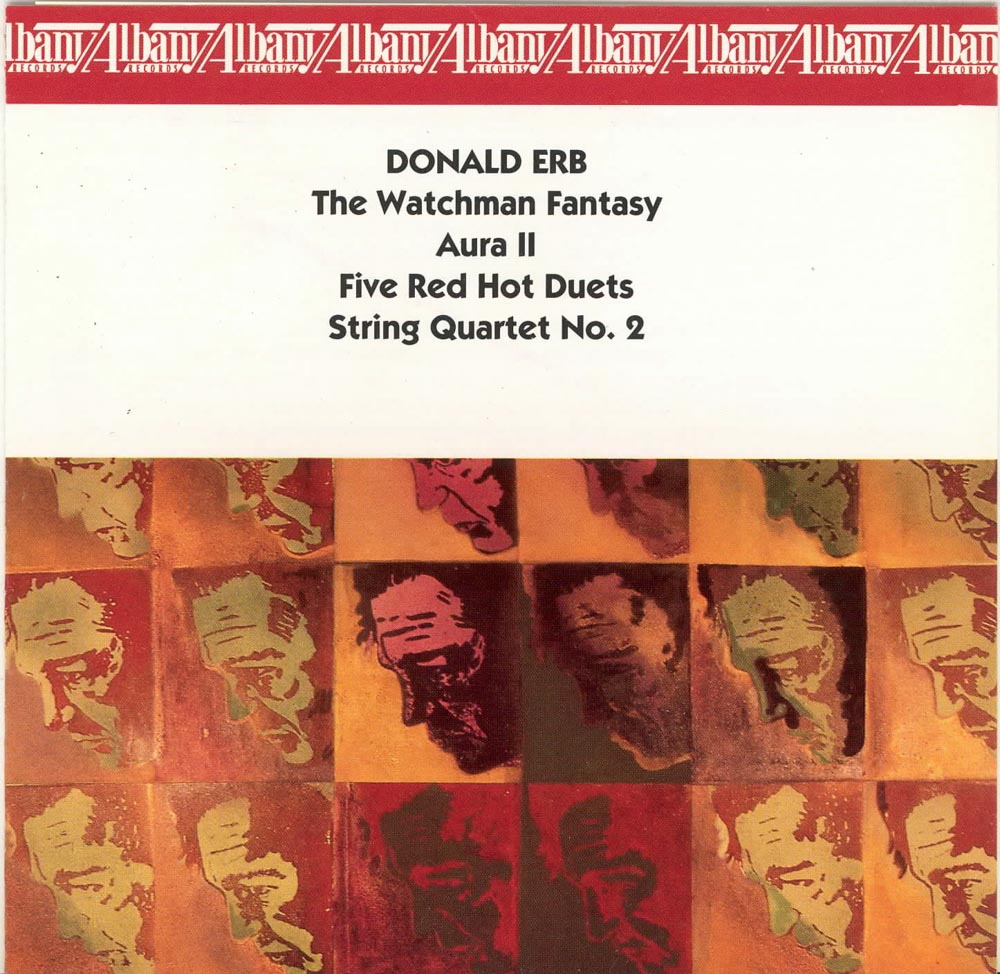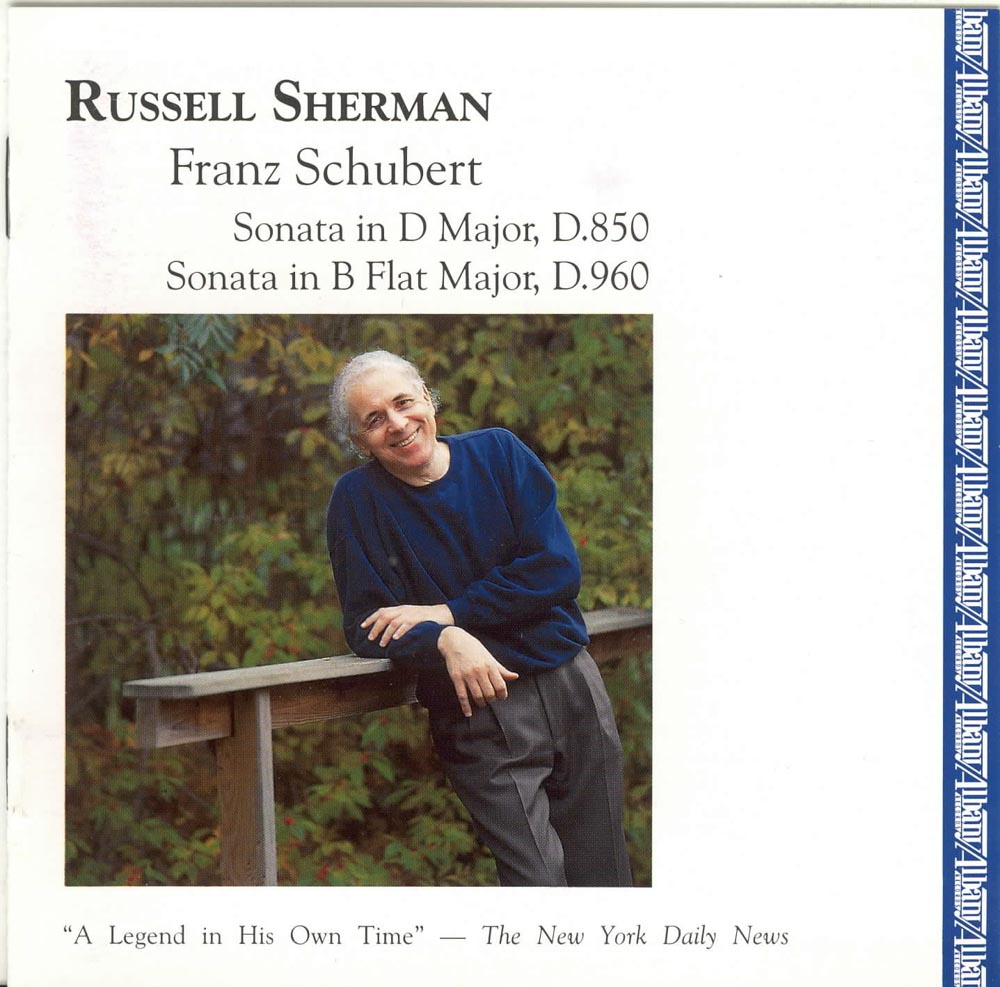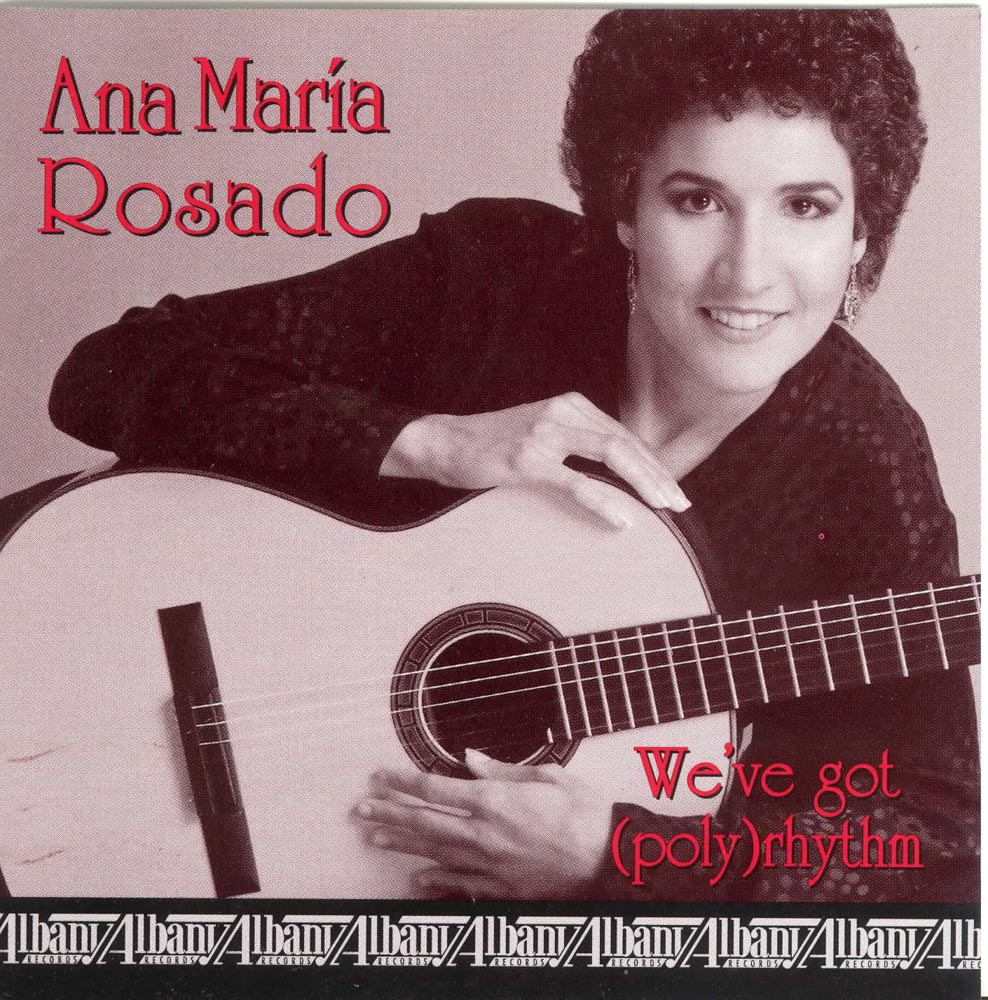Catalog #: TROY0134
Release Date: September 1, 1994ChamberMichael Horvit (b. 1932) is Professor of Theory and Composition at the University of Houston School of Music, where he has chaired that department since 1967. For 25 years he served as Director of Music at Temple Emanu El in Houston. During his studies at Yale, Harvard, Tanglewood and Boston University, his composition teachers included Aaron Copland, Lukas Foss, Walter Piston, Quincy Porter and Gardner Read. His works range from solo instrument and vocal works to large symphonic compositions, choral cantatas and operas, many written specifically for the Jewish liturgy. Among the numerous ensembles and organizations that have commissioned his works are the Houston ballet, the Houston Symphony, the National Symphony of Mexico, the Chicago Chamber Brass, and the Esterhazy String Quartet. He is the recipient of awards from organizations that include BMI, ASCAP, the Martha Baird Rockefeller Foundation, the National Endowment for the Arts, the Fridge Trust, and the University of Houston.
Catalog #: TROY0129
Release Date: September 1, 1994ChamberHoward Hanson (1896-1981) was a distinguished American composer, educator and preeminent advocate of American music. He belonged to that select group of American composers born in the last decade of the nineteenth century - Walter Piston, Roger Sessions, Randall Thompson, Roy Harris, Virgil Thomson and Aaron Copland - who personified the emergence of American classical music as a distinctly national, as opposed to European, cultural force to be taken seriously. He was the leading practitioner of American musical Romanticism, much in the tradition of Jean Sibelius, Edvard Grieg and Carl Nielsen in Scandinavia. Hanson dedicated his professional life to the encouragement, creation and preservation of beauty in music, believing it to be an art form possessing unique power to ennoble both performer and listener, and, by extension, mankind. Throughout his career, Hanson never departed from his cherished ideals of beauty, clarity and simplicity of utterance and his conviction that musicians and audiences would respond openly to each other on this basis. He abhorred ugliness in music, dismissed as worthless intellectual abstraction for its own sake, and fought what he perceived to be the growing alienation between composer and audience. A lifetime of composition reflects this conviction, as did his lengthy tenure as a teacher and administrator.
Catalog #: TROY0124-25
Release Date: September 1, 1994ChoralHoratio Parker was born in Auburndale, Massachusetts on September 15, 1863. Although today he is remembered primarily as the teacher of Charles Ives, his music was well-known nationwide and in England during his day. He also had an excellent reputation as an organist-choirmaster, conductor, and teacher-administrator. He began the study of music at the age of 14 with piano and organ lessons from his mother, who was also librettist for some of his mature choral works. He studied composition with George Chadwick and attended the Hochschule fÜr Musik in Munich where he studied with Josef Rheinberger. Parker became Dean of the School of Music at Yale University and conductor of the New Haven Symphony in 1894, positions he retained until his death in 1919. Hora Novissima, written in 1893, remains Parker's most inspired, popular, and best work. The venerable critic Philip Hale summed up how Americans were to feel about their native oratorio for the next 25 years, as choral societies gave it performance after performance throughout the country. He said: "A future historian will point back to a young man [who] appeared with a choral work of long breath that showed not only a mastery of the technique of composition, but spontaneous, flowing, and warmly colored melody, a keen sense of values in rhythm and in instrumentation, and the imagination of the born, inspired poet." Hora Novissima is a contemplative rather than a dramatic oratorio. It is a reflection on the Christian heritage through the words of a medieval monk, Bernard of Cluny, from whose monumental poem, De Contemptu Mundi, Hora is taken.
Catalog #: TROY0118
Release Date: August 1, 1994VocalThe centerpiece of this song collection, Dominick Argento's cycle From the Diary of Virginia Woolf, was awarded the 1974 Pulitzer Prize. A setting of eight excerpts from Woolf's journal, this ambitious and complex work offers in each song a glimpse into the writer's voyage of self-discovery as she observes her literary, emotional, social, and creative life. Beginning with the opening entry from 1919, the songs traverse a variety of experiences past her prescient 1940 thought, "I can't conceive that there will be a 27th June 1941," to the final entry, just before her suicide in March of 1941. In the composer's words, "I think I write music as a way of learning who I am, what I really think, what I truly believe. My own career has been an exercise in self-discovery. The strong concentration that these texts focus on self-knowledge may have prompted me to write my most moving music. Not a week goes by that I do not receive a letter from a singer or a listener saying how moved they were by a performance of the Virginia Woolf Diary." A singer who loves song literature, mezzo-soprano Mary Ann Hart has delighted audiences and critics alike with her performances. Out of sight (but still in earshot) Miss Hart did voice characterizations for the Disney animated film Beauty and the Beast and has recorded for the Arabesque, Chandos, Nonesuch and Albany Records labels.
Catalog #: TROY0117
Release Date: July 1, 1994InstrumentalGeorge Walker was born in Washington, DC on June 27, 1922 of West Indian-American parentage. He graduated from high school at the age of 14, attended Oberlin College and the Curtis Institute of Music where he studied piano with Rudolf Serkin and composition with Rosario Scalero. His auspicious debut at Town Hall in 1945 was described in the New York Times as "notable...an authentic talent of marked individuality and fine musical insight...a rare combination of elegance and sincerity...an understanding, a technical competence and a sensitiveness rarely heard at debut recitals." Walker obtained his Doctor of Musical Arts Degree from Eastman and went on to study in France with Nadia Boulanger on Fulbright and John Hay Whitney Fellowships. His compositions have been played by virtually every major orchestra and chamber orchestra in the United States. This recording uniquely showcases the pianist as composer-composer as pianist as Walker performs his Sonata No. 1.
Catalog #: TROY0114
Release Date: July 1, 1994Chamber"I composed The Dancing Bird in response to a need expressed by Francesca Vanasco for a number of original works for the unusual combination of flute, cello, bass and vibraphone that make up Alborada Latina, the chamber ensemble for Latin American Music," says Thad Wheeler. "The Dancing Bird was begun after I received a diagram of a Spanish Sevillanas from Basilio Georges. I used the 47 bar form as a framework for "Sevillanas Magicas," a Spanish sevillanas with an American accent. I hen went on to write "Bulerias," "Purple Night," and "Scherzo Merenque," integrating structural and developmental devices used by Beethoven with flamenco and Venezuelan rhythms and my own melodic and harmonic materials. The last piece composed for The Dancing Bird was "Glimmerglass." I wrote this piece while spending a great deal of time house-hunting in Cooperstown, New York in the late winter-early spring."
Catalog #: TROY0119
Release Date: May 1, 1994VocalStephen Foster was a figure of contradictions: the composer was much loved by the public, but was at the same time a thoughtless husband and father. While his songs reflect a real intimacy with the antebellum South, Foster was not from the South and only once traveled into the region. Was he merely an "artless genius" who knew little about music or a well-studied craftsman? Foster was America's earliest popular and successful songwriter. Yet he died alone and penniless - not in the South, not even at his family home in Pittsburgh - but at Bellevue Hospital in New York City. While Stephen Foster's personal and business habits may have been chaotic, research has shown the man to have been a dedicated musician. Despite early biographers' description of an unschooled lightweight, the fact is that Foster carefully studied the American minstrel tradition and knew German Lieder and Irish-Scottish song literature. Foster's songs are often set for multiple voices, diverse instruments and even a cappella chorus. It is the intention of this recording to present the wealth of Foster's music - but not with a lone vocalist and accompanist from a single musical vantage point. Instead, both "classical" and "folk" musicians have gathered to sing and play on dulcimers, fiddles, accordions, pennywhistles and old pianos. Despite occasional wheezing, crunching and crackling, we hope these antique instruments - and our wonderful contemporary vocalists - will charm the listener and capture something of Stephen Foster's diverse genius that one might have experienced on a little 19th century concert stage, a street corner or on a back porch.
Catalog #: TROY0115
Release Date: May 1, 1994OrchestralWith this handful of works by composers with Oregon connections, the Portland Youth Philharmonic re-enters the lists of Northwest recording orchestras - among whom it was the first. In the '60s and '70s the Philharmonic recorded 10 works by eight composers on the CRI label - to good press and public reception. Six of those pieces had been commissioned by the Philharmonic under a grant from the Rockefeller Foundation. The rationale at the time was that young musicians could be the best proponents for new music except that often it was beyond their reach technically. To meet this problem, the Philharmonic invited composers to produce works that were a little less difficult but still true to their own style. This recording was made to celebrate the Philharmonic's 70th Anniversary and continue the commitment to contemporary music. Composers whose works receive world premiere recordings on this disc are Salvador Brotons, Kevin Walczyk, John Van Buren, Bryan Johanson and Jacob Avshalomov.
Catalog #: TROY0096
Release Date: April 1, 1994InstrumentalIn his tragically short career (he died at age 18), Aliosha Nikolaev (1959-1977) wrote not only piano music but two Romances based on texts of Pushkin, a quintet for two violins, one viola, and two cellos, a trio for two flutes and cello, and in 1984 a suite for oboe and piano. Many of Aliosha Nikolaev's compositions present to a large extent, vivid and colorful interpretations of Russian folk fairy tales, of which The Tin Kingdom is an example. The Cat's Hut is based on a play written for the children by Russian poet Samuel Marshak. Boris Tishchenko was born in Leningrad in 1939 and is a graduate of the Leningrad Conservatory. His list of credit sis in keeping with his status of one of the geatest composers of our time. He is a recipient of hte title People's Artist of Russia and of the Russian Federation's prestgious Glinka Award. He is a master of the large forms, having written one opera, one operetta, three ballets.
Catalog #: TROY0080
Release Date: April 1, 1994VocalCharles Edward Ives (1874-1954) was a prolific composer of orchestral, instrumental, and vocal music. He composed more songs than any other type of music. In four volumes, four singers accompanied by their individual pianists, present more than 150 songs chronologically, the first recording of the complete songs of Charles Ives. Ives authorized transposition of them, so they can be sung by all voices. This amazing body of work from a musician who was also an inventive and successful insurance executive, span the 35 years of Ives’s compositional life, mirroring the many facets of his character: tenderness, humor, disapproval of hypocrisy and sham, nostalgia, Americanism, Yankeeism, religion, socialism, love of nature. Some of the songs are extremely difficult; others are simpler; few can be picked up and read right off. They resemble a workshop filled with Ives’s ideas, fragmentary or extended. Most were published in 114 Songs – the book compiled, published, and distributed at Ives’s own expense in 1922; others were composed “post-114,” among them Peaks, Yellow Leaves, The One Way, A Sea Dirge and In the Mornin’. The Ives oeuvre is substantial, and his output in songs alone is richer and more fulsome by far than might be expected from any career, let alone a curtailed one. This four volume set of the complete songs of Charles Ives is a major contribution toward the understanding, appreciation, and enjoyment of one of the greatest song collections in the history of music.
Catalog #: TROY0111
Release Date: March 1, 1994OrchestralThis recording features the St. Stephens Chamber Orchestra performing works by North Carolina composers. Central to the recording is Hunter Johnson's Letter to the World. Hunter Johnson (b. 1906, Benson, North Carolina) composed extensively for piano, various chamber ensembles and orchestra. He is perhaps best known for his much-performed piano sonata and two ballets commissioned by Martha Graham, each of which has had hundreds of performances worldwide by the Graham Dance Company. Of the many artistic homages that have been paid to the spirit and poetry of Emily Dickinson, one of the finest tributes is Martha Graham and Hunter Johnson's collaboration, Letter to the World. Premiered in1940, this synthesis of dance, music and poetry soon became an established modern dance classic. The music (and dance) describe the legend of Emily Dickinson and the world of her imagination rather than the actual facts of her real life. Other works on the recording include Robert Ward's Concertino for Strings; Walter Ross's Mosaics; and Richard Rendleman's Concertino for Tenor Saxophone and Orchestra.
Catalog #: TROY0109
Release Date: March 1, 1994VocalThe works of women composers have been consistently overlooked by music historians. New emphasis is now being placed on "women in music" in music departments and women's studies programs across the country. The works of many women are beginning to emerge from the neglect of the past, and are becoming recognized as compositions worthy of study and performance. This is especially true in the art song genre which because of the small forces involved, allowed for the possibility of performance, even if only in the home. The songs of these three composers represent three different styles. Although all were born in the nineteenth century, their styles of composition are as distinct as the poetry that each chose to set. Clara Schumann composed in the tradition of the early Lieder composers, setting texts of German Romantic poets. Irene Wieniawska's (known as Poldowski) music, which includes a large number of settings of Paul Verlaine, is predominantly in the French impressionistic idiom. Amy Beach was an American who set various English-speaking poets from Shakespeare and Robert Burns to her own husband and herself.
Catalog #: TROY0101
Release Date: March 1, 1994OrchestralBorn in Chicago in1922, composer Irwin Bazelon graduated from DePaul University and later studied composition with Darius Milhaud. Bazelon's works for orchestra, chamber ensemble, solo instrument, and voice have been performed throughout the U.S. and Europe. He has conducted his music with such orchestras as the National Symphony Orchestra, the Detroit Symphony, the Kansas City Philharmonic, and the Orchestre National de Lille. Grants and commissions were awarded by the National Endowment for the Arts, the Koussevitzky Foundation, the Ford Foundation, the Kansas City Philharmonic and the New Orleans Philharmonic, among others. The composer served as guest composer and lecturer at many prestigious American colleges and universities, including Rutgers University, Williams College, the University of South Carolina and Eastman. Bazelon, a noted authority on film music and composer of many documentary film scores, has written Knowing the Score - Notes on Film Music, a book widely used on college campuses.
Catalog #: TROY0113
Release Date: February 1, 1994InstrumentalJoseph Fennimore has written songs, chamber music, orchestral works, and two one-act operas. His works have been performed by the Chicago Symphony, the Metropolitan Opera Studio, the New York City Ballet, at the Almeida Festival in London, and the Ravinia, Saratoga Performing Arts Center, and Tanglewood festivals, among others. His music has been performed nationwide, in Europe and Japan and broadcast worldwide on Spectrum, Nonesuch, and Albany Records. Born in New York City, Fennimore has been composing since childhood. He attended the Eastman and Juilliard Schools of Music, receiving degrees with honors from both. After a brief but distinguished career as a pianist, he founded and or its first five years directed the Hear America First Concert Series in New York City devoted to American music. The piano works on this disc include Armistice, a set of three pieces named for the intermission between the two world wars; Variations on a Theme of Beethoven; The Woolworth Man and The Hen's Snuffbox are stylized rags taking their titles from poems in Afro-American dialect by Herbert Woodward Martin. Foxtrot is a sonata in two movements. Blues conjures smoky bars, a haze of booze, hangovers and regrets for the sour love of one-night stands. An Old Soft Shoe is danced by a vaudeville tatterdemalion in top hat and tails, deftly bouncing his rubber cane, executing comic bits and pratfalls while proudly recalling better times long gone. Bernini's altarpiece of St. Teresa in ecstasy and St. Teresa's own writings about the experience give some notion of the central portion of the Second Romance: Calentura de Teresa. The first performance of Concerto Piccolo was at the Eastman School with Howard Hanson conducting.
Catalog #: TROY0106
Release Date: January 1, 1994Chamber"All the works on this recording are from the late 1970s and early 1980s," comments Dan Asia. "They reflect my interest then I combining the energy of vernacular music (pop and jazz), with the structural and linguistic possibilities of contemporary classical music, and all of this refracted through the sonic possibilities suggested by the current nascent world of electronic music. While some of the works presented are solely electronic, and others are for acoustic instruments alone, my interest was in the cross fertilization that can occur between these genres." Dan Asia, composer-in-residence with the Phoenix Symphony, was born in Seattle, Washington in 1953. He has been the recipient of the most competitive grants and fellowships in music including a Meet The Composer-Reader's Digest Commission, a Guggenheim Fellowship, four NEA Composers Grants and ASCAP and BMI composition prizes. After receiving his B.A. degree from Hampshire College, where he studied music and European History, Mr. Asia attended the Yale School of Music, receiving the Master of Music degree. His major teachers include Jacob Druckman, Stephen Albert, Gunther Schuller, Isang Yun, Arthur Weisberg, Bruce MacCombie, Ron Perera, and Randall McClellan. He presently teaches at the University of Arizona in Tucson.
Catalog #: TROY0098
Release Date: January 1, 1994ChoralThis collection of music for solo voice and chorus includes compositions by American composers Aaron Copland, John Duke, Jackson Hill, Richard Hundley, William Duckworth, Rudolph Palmer and Lee Hoiby. Several of the works were written expressly for D'Anna Fortunato (the mezzo-soprano soloist) and the Rooke Chapel Choir. Since her debut in 1971 with the Boston Symphony Orchestra, Fortunato has appeared as soloist with the New York Philharmonic, the orchestras of Cleveland and Louisville, and the Detroit, Pittsburgh, Atlanta, Houston, Dallas, and Minnesota symphonies. Ms. Fortunato has been featured in leading operatic roles with the New York City, Glimmerglass, Kentucky and Connecticut operas, as well as the Opera Company of Boston, Monadnock Festival, and Rochester Opera Theater. Andrew Porter of The New Yorker called her a "Handelian of crisp accomplishment," and Leighton Kerner of The Village Voice proclaimed her a "mezzo-soprano of profound musicality and technical aplomb." She has recorded on the Harmonia Mundi, Nonesuch, MusicMasters and Vox labels. Her album of songs by Amy Beach was voted "Best Record of the Year" by the New York Times, the Boston Globe, and New York Magazine. The Rooke Chapel Choir of Bucknell University, under the direction of William Payn, has gained international recognition for its creative interpretations of some of the most significant twentieth-century American sacred repertory.
Catalog #: TROY0079
Release Date: January 1, 1994VocalCharles Edward Ives (1874-1954) was a prolific composer of orchestral, instrumental, and vocal music. He composed more songs than any other type of music. In four volumes, four singers accompanied by their individual pianists, present more than 150 songs chronologically, the first recording of the complete songs of Charles Ives. Ives authorized transposition of them, so they can be sung by all voices. This amazing body of work from a musician who was also an inventive and successful insurance executive, span the 35 years of Ives's compositional life, mirroring the many facets of his character: tenderness, humor, disapproval of hypocrisy and sham, nostalgia, Americanism, Yankeeism, religion, socialism, love of nature. Some of the songs are extremely difficult; others are simpler; few can be picked up and read right off. They resemble a workshop filled with Ives's ideas, fragmentary or extended. Most were published in 114 Songs - the book compiled, published, and distributed at Ives's own expense in 1922; others were composed "post-114," among them Peaks, Yellow Leaves, The One Way, A Sea Dirge and In the Mornin'. The Ives oeuvre is substantial, and his output in songs alone is richer and more fulsome by far than might be expected from any career, let alone a curtailed one. This four volume set of the complete songs of Charles Ives is a major contribution toward the understanding, appreciation, and enjoyment of one of the greatest song collections in the history of music.
Catalog #: TROY0108
Release Date: December 1, 1993ChoralThe twentieth-century American composers chosen for this program of choral music represent diverse styles and span almost 100 years; what they have in common is a sure sense for vocal writing, a preference for nontraditional but tonal harmony, and a delight in good poetry. The Composers: Halsey Stevens has taught at the University of California since 1948. He is an expert on Bartok and has composed a wealth of vocal and instrumental music. Charles Ives, New England's quirky, original insurance man-composer, began composing when he was 12 and held a job as church organist when he was only 14. Samuel Barber's gift for melody and the unabashed romanticism of some of his best-known works have made him one of the most popular mid-twentieth-century composers. Alan Hovhaness is an American composer of Armenian and Scottish descent. A prolific writer in a variety of forms, he is known for mystical works with an Eastern or Oriental flavor. Randall Thompson taught at the University of California at Berkley, Princeton, and Harvard, and was director of the Curtis Institute of Music. Ronald Perera studied with Leon Kirchner, Randall Thompson, and Mario Davidovsky. He has won awards and fellowships from the National Endowment for the Arts and ASCAP and teaches at Smith College. Matthew Harris, born in 1956, studied at Juilliard, Harvard, and New England Conservatory with Elliott Carter, Roger Sessions, Milton Babbitt, and Donald Martino. The recipient of many prizes and commissions, he is represented on record by Opus One. Irving Fine - teacher, conductor, respected and widely programmed composer of chamber, orchestral, and choral music - was educated at Harvard and later taught there and at Brandeis University. A contemporary of Leonard Bernstein and Aaron Copland, he died prematurely in 1962.
Catalog #: TROY0104
Release Date: December 1, 1993OrchestralFrom the pen (or computer) of a composer to the written and printed page is only the beginning of a meaningful musical passage. The resulting scores must be heard in order for the journey to be complete. Such is possible only when scores are transmitted to listeners by way of interpreters, roles well assumed on this recording by the Bohuslav Martinu Philharmonic, tenor soloist Everett McCorvey and conductor Julius P. Williams. The focus of this compact disc is the music and the five men who wrote the music. African-American composer Arthur Cunningham said, "Call me what you will; call my music music." African-American composer Hale Smith wrote, "We must be a part of the mainstream in this country...We don't even have to be called black. When we stand for our bows, that fact will become clear when it should - after the work has made its own impact." The fact that the five composers on this recording (Adolphus Hailstork, Henry Burleigh, Julius P. Williams, Gary Powell Nash, David N. Baker) are of African descent will become clear only when viewing their photographs. The music should already have made an impact.
Catalog #: TROY0105
Release Date: November 1, 1993ChamberRoy Harris's life (1898-1979) was a singular phenomenon: humble beginnings on the family farm; truck driving to support his musical studies; study in Paris with Nadia Boulanger supported by a patroness; performances of his symphonies by Koussevitzky, Toscanini, Ormandy, and Bernstein; a series of academic positions around the country; marriage to a brilliant pianist; a large family of his own; and hard work up to the end of his days. Today's foremost authority on the life and works of Harris, musicologist Dan Stehman, has this to say about the piano works: "...the piano pieces reveal Harris's exceptional skill as a miniaturist, working concisely and unpretentiously to create clearly defined moods. For many listeners these compositions have served as the initial introduction to his music and, indeed, they remain one of the easiest approaches to his style and technique." In 1942 the Sonata for Violin and Piano was awarded the Elizabeth Sprague Coolidge Medal for eminent service to Chamber Music. Yehudi Menuhin, Josef Gingold, Henri Temianka, Sidney Harth, and Eudice Shapiro are among the distinguished violinists who have programmed it. Although Harris sanctioned cuts in the first and last movements, the performance recorded here presents the sonata in its entirety.
Catalog #: TROY0103
Release Date: November 1, 1993OrchestralFueled by the brashness of a young nation, nineteenth century America produced a group of composers as diverse as the people who created the United States. They created a body of music that was distinctly American in sound and spirit. They were teachers, conductors, performers, publishers and administrators, but first and foremost, they were composers. Composers of music that moved the feet, sang the praises and expressed the hopes and desires of the American people. Who were they? Francis Johnson (1792-1844) was an American-American probably born in Philadelphia. Hailed during his lifetime as America's first native born master of music, he was a skilled performer on the keyed bugle, violin and piano. William Henry Humiston (1869-1923) was born in Marietta, Ohio. Easily the most enigmatic of the composer on this recording, Humiston was primarily an organist. He studied composition with Edward MacDowell from 1986-1899 and became assistant conductor of the New York Philharmonic in 1916. Harry Rowe Shelley (1858-1947) was one of the few American composers of his generation to study exclusively in the United States. Born in New Haven, Shelley studied at Yale University with Gustav Stoeckell and later with Dudley Buck and Antonin Dvorak in New York. Shelley was an organist at various churches in Manhattan and Brooklyn until his retirement in1936. George Whitefield Chadwick (1954-1931) was an American original, an independent Yankee who rose from humble origins to a position of prominence on his own merits. Founder of the Music Teachers National Association, Chadwick used his salary from his father's insurance firm to finance his musical education. Edgar Stillman Kelley (1857-1944) was a prolific composer of programmatic works noted for his innovative orchestration. Born in Sparta, Wisconsin, Kelley studied with Clarence Eddy in Chicago with further studies in Stuttgart. Kelley taught at the Cincinnati Conservatory of Music for more than 20 years.
Catalog #: TROY0102
Release Date: November 1, 1993InstrumentalThe people who remember Joseph Fennimore's piano playing in the late 1960s and early 1970s still talk about it with admiring astonishment. "A pianist of talent and temperament," declared the New York Times after Fennimore's 1967 New York City debut. "He was wonderful," echoed the Washington Post a few years later, "a rarity in an age of fine pianists." Still another reviewer summed up his review thus: "Joseph Fennimore is the name. If the concert managers, booking agents and the public have any sense at all you will be hearing more of it." To anyone familiar with Fennimore's musical personality and the subsequent development of his career, reading such statements gives a twinge. In 1974, with what looked like a career of enormous promise ahead, he gave a farewell recital in New York; apart from a couple of appearances as an accompanist, he hasn't played in public since. Born in New York City on April 16, 1940,.Fennimore grew up in the upstate towns of Ballston Spa and Scotia. He began piano study at six and at 13 made his first appearance with an orchestra. He continued his studies at the Eastman School of Music, where he was a piano student of Cecile Genhart. At the Juilliard School, where he subsequently received a master's degree, his teacher was Rosina Lhevinne. What has struck many who have heard Fennimore's playing - quite aside from the obvious brilliance and expressiveness - has been its remarkable spontaneity. It is music-making utterly uninhibited by academicism, though that statement implies no lack of intellectual content. Rare, in fact, is a musician so widely read, so intellectually probing, so articulate as Fennimore.
Catalog #: TROY0107
Release Date: October 1, 1993ChamberIt might be said that the composers on this recording represent three aspects of what Gilbert Chase called "Boston Classicism." Each composer had close ties to the musical life of Boston, and in his own way, each composer reflected European classical traditions. Typical of turn-of-the-century ideals, the two American-born composers, Parker and Heilman, studied in Germany, then brought back to New England the romantic European style that was then considered more acceptable than less cultured American styles. Paradoxically, Samuel Adler was born in Germany, but he studied in Boston. Even so, his style is solidly based on European classic techniques, especially on his love of Bach and Handel. The Rawlins Piano Trio was founded in the summer of 1987 at the University of South Dakota and named by the trio in honor of their principal benefactors. The trio has dedicated itself to performing works by American composers, as well as the more traditional piano trio literature. Performing throughout the United States, the Rawlins Piano Trio has been invited to perform for the International Sonneck Society for American Music and continues a very active concert schedule.
Catalog #: TROY0099
Release Date: September 1, 1993ChamberJay Weigel was born in New Orleans and graduated from Tulane University in 1981, while studying composition privately with Roger Dickerson. After receiving a Masters of Music Degree in Composition from the University of Southern California, he returned to New Orleans. In 1984, he was appointed Music Director of the Contemporary Arts Center and Lecturer of Composition and Theory at Xavier University. Most recently, Weigel's work on the R.E.M. hit album "Out of Time" earned him a quadruple-platinum award. About his music, he writes: "The music on this compact disc was composed between 1987 and 1992. This music documents a period of personal discovery and revelation. As I wrote each work, I felt a step closer to discovering the elusive voice I've always strived to find. That voice is ultimately expressed through my use of the raw musical material present in New Orleans and its music. My personal experience with New Orleans music has shown me the wealth present in its musical culture, a culture that served as the catalyst for all modern, popular music; a culture whose melodic improvisations spawned jazz; a culture whose rhythmic patterns breathed new life into the field cries that turned into the Blues as it made its way up the Mississippi River to Chicago; a culture whose musical traditions are passed from parent to child and friend to neighbor; a culture still growing, experimenting, playing and influencing music world-wide; a culture whose emphasis on acoustic instrumentation defies the vagaries of modern electronic renderings; a culture relatively untapped by most composers working in the written tradition. The compositions on this disc reflect my New Orleans spiritual heritage. They reflect the unique feel of heart-pounding parade drumming, the smell of fresh rain on the sub-tropical streets; the unique blast of a heavy left hand on an upright piano." Wisdom from program notes on a CD and fine, accessible music as well.
Catalog #: TROY0097
Release Date: September 1, 1993InstrumentalThis is a disc that contains music that should be pleasing to everyone. Berends composes in a style that is romantic and accessible. He was born in Baltimore where he graduated from the Peabody Conservatory with honors in 1973. In 1978, he received a Bachelor of Science degree in Electrical Engineering from Princeton University in a curriculum emphasizing electronic and computer-generated music. The music contained on this disc is about as far removed from what one normally associates with a composer with these credentials as one could imagine. In this 30 years as a keyboard artist, he has performed with everyone from jazz guitar innovator Stanley Jordan to Rock and Roll pioneer Chuck Berry. Fifteen Exceptions for Piano is a collection of his original piano music written between 1978 and 1991.
Catalog #: TROY0094
Release Date: August 1, 1993InstrumentalLola Odiaga, the Peruvian harpsichordist and fortepianist, continues her series of the complete works of Haydn for piano with this disc that features five sonatas from 1776. The mid- and later 1770s saw a relaxation in Haydn's compositional style, a move away from the stormy melancholy of the many minor key works written in the late 1760s and early 1770s. It is no coincidence that this was also a period in which the composer strengthened his ties with Vienna where he eventually took up residence in 1791. The "six sonatas of 1776" (so called in Haydn's catalog of his own works), of which five are featured on this recording, were the official property of Haydn's patron Prince Nikolaus Esterhçzy, but they could be purchased in Vienna, in manuscript copies, and from professional copy shops. Each sonata on the program ends with a finale in variation form, based either on a minuet or a contredanse, and this, along with the use of the minuet and trio as an internal movement, and the elements of folk song, suggests that in writing his six sonatas of 1776 Haydn aimed to appeal (though not to pander) to current Viennese taste. The fortepiano used in this recording is a copy of an Anton Walter instrument dated ca. 1790 built by Rodney Regier of Freeport, Maine. It has a compass of just over five octaves and - as was the case with the fortepianos of the period - in many ways resembles the harpsichord more than the modern piano.
Catalog #: TROY0081
Release Date: August 1, 1993VocalFrom Billings to Bolcom - the subtitle of this recording dedicated to the American art song is a compilation of the best American has to offer from our musical beginnings to today. "Some of our best American composers have not been prolific songwriters," says Paul Sperry. "I think William Schuman's Orpheus with His Lute has everything a song needs: it is simple, moving and beautiful. But it is a single song, written for a proposed production of Henry VIII and has no companion pieces. Elliott Carter's three settings of Robert Frost constitute almost half of the solo songs he wrote, and Elie Siegmeister's arrangement of William Billings is the only solo Billings song I have seen. That is why I have compiled this American Sampler - to be able to record songs I love without having to worry about assembling a group by each composer. I have simply picked 31 of my favorite songs and put them together the way I would in a recital: organized to show each one to greatest advantage. I have deliberately not grouped the songs by composer, period or style, except for John Musto's little cycle, Shadow of the Blue: I kept it together because it is so powerful as an entity." Paul Sperry is recognized as one of today's outstanding interpreters of American music. Although he is equally at home in a repertoire that extends from Monteverdi opera and the Bach Passions to Britten's War Requiem and hundreds of songs in more than a dozen languages, he brings to American music a conviction and an enthusiasm that has brought it to life for countless listeners.
Catalog #: TROY0078
Release Date: August 1, 1993VocalCharles Edward Ives (1874-1954) was a prolific composer of orchestral, instrumental, and vocal music. He composed more songs than any other type of music. In four volumes, four singers accompanied by their individual pianists, present more than 150 songs chronologically, the first recording of the complete songs of Charles Ives. Ives authorized transposition of them, so they can be sung by all voices. This amazing body of work from a musician who was also an inventive and successful insurance executive, span the 35 years of Ives's compositional life, mirroring the many facets of his character: tenderness, humor, disapproval of hypocrisy and sham, nostalgia, Americanism, Yankeeism, religion, socialism, love of nature. Some of the songs are extremely difficult; others are simpler; few can be picked up and read right off. They resemble a workshop filled with Ives's ideas, fragmentary or extended. Most were published in 114 Songs - the book compiled, published, and distributed at Ives's own expense in 1922; others were composed "post-114," among them Peaks, Yellow Leaves, The One Way, A Sea Dirge and In the Mornin'. The Ives oeuvre is substantial, and his output in songs alone is richer and more fulsome by far than might be expected from any career, let alone a curtailed one. This four volume set of the complete songs of Charles Ives is a major contribution toward the understanding, appreciation, and enjoyment of one of the greatest song collections in the history of music.
Catalog #: TROY0092
Release Date: July 1, 1993ChamberDonald Erb, described by Nicolas Slonimsky in the Bakers Biographical Dictionary of Musicians as a "significant American composer," was born in Youngstown, Ohio in 1927. His orchestral music has been played by literally every major orchestra in the United States and many in Europe, Asia and Australia as well. He has had commissions from the Chicago Symphony Orchestra, the Cleveland Orchestra, the St. Louis Symphony Orchestra, the Baltimore Symphony Orchestra, the Dallas Symphony Orchestra, the Houston Symphony Orchestra and others. Erb studied at Kent State University, the Cleveland Institute of Music (where he now teaches), and Indiana University. He has received grants and fellowships from the Rockefeller, Guggenheim, and Ford Foundations and has served as composer in residence with the Dallas and St. Louis Symphony Orchestras. Among the many organizations that have honored him are the International Rostrum of Composers, the Library of Congress, the National Endowment for the Arts and the American Academy of Arts and Letters.
Catalog #: TROY0091
Release Date: July 1, 1993OperaBased on the story by Ray Bradbury, this marvelous chamber opera was composed by Lawrence Rapchak between September 1988 and February 1989. It was given its world premiere performance on April 21, 1990 by the same forces heard on this recording. As with so many contemporary operas, the libretto is riveting. Here is a synopsis: Juan Diaz, a poor peasant, dies after a lifetime of failing to provide for his wife Maria and their three children. On his deathbed, he promises to somehow help care for them from beyond the grave. A year after the death, the malevolent gravedigger Alejandro cheats Maria and unearths the body of her late husband, placing it on display in the catacombs. The loyal and courageous Maria then manages to steal the body and evade the gravedigger's charges of theft. She then places the body on an altar in her home, thus creating a small museum of her own, and charges admission to the tourists who come to celebrate the Day of the Dead. Through her actions she has made it possible for Juan to keep his deathbed pledge by providing income for his family.
Catalog #: TROY0084
Release Date: May 1, 1993InstrumentalThe artist Hans Hofmann once described a painting to a critic as stemming from unbreakable rules. Then he immediately turned to another of his paintings and said he never thought while painting: it interfered with his spontaneity. Sherman's music is that same contrapuntal fission of rule and rebellion, skeleton and soul: structure informed by passion, the premeditated speech tripped up by the spontaneous touch, the push and pull of mind against gland, the classical cape against the romantic thigh, the German scholar and Hungarian guerilla fused so that both exist simultaneously at any given time. As the New York Times has said, "It was the kind of fantastical piano program that Horowitz's playing might have splintered apart with fireworks...But when Russell Sherman played these compositions in Alice Tully Hall the music was glittering, but not fractured; it made sense along with its sound." Sherman is the pianist's pianist, his concerts filled with excited musicians. If you have not been lucky enough to attend his rare, tortured, and ecstatic concerts, we hope this lush Schubert album with its seething undercurrents will, along with his 20-odd other recordings, provide some consolation.
Catalog #: TROY0087
Release Date: April 1, 1993InstrumentalThe guitar has always been a pillar of musical expression in Latin America. Its personal character reflects the strain of individuality in Latin cultures. Twentieth Century luminaries including Heitor Villa-Lobos, Carlos Chavez and Alberto Ginastera, have paid homage to the guitar through their compositions. Contemporary Latin American composers continue the tradition of these musical giants. Composers on this recording, all different in their musical approach, share a special feel for the guitar. Roque Cordero (Panama-USA), Tania Léon (Cuba-USA) and Rafael Aponte-Ledée (Puerto Rico) employ techniques of atonal composition while fusing regional elements. Edmundo Vçsquez, the Paris-based Chilean composer, utilizes traditional folkloric structures elaborated by the techniques of current musical idioms. United States born Francis Schwartz, who has made Puerto Rico his home, uses the guitar and the guitarist as features of a music theater work which includes vocal sounds and gestures from the audience. The renowned Argentinian composer, Astor Piazzolla, added classical training to his vast popular musical experience as a bandoneon player. Piazzolla highlights in these guitar pieces the harmonic language he used to rejuvenate the traditional tango.
Catalog

©2024 Albany Records. All rights reserved. | Privacy Policy | Website by PARMA Creative.
